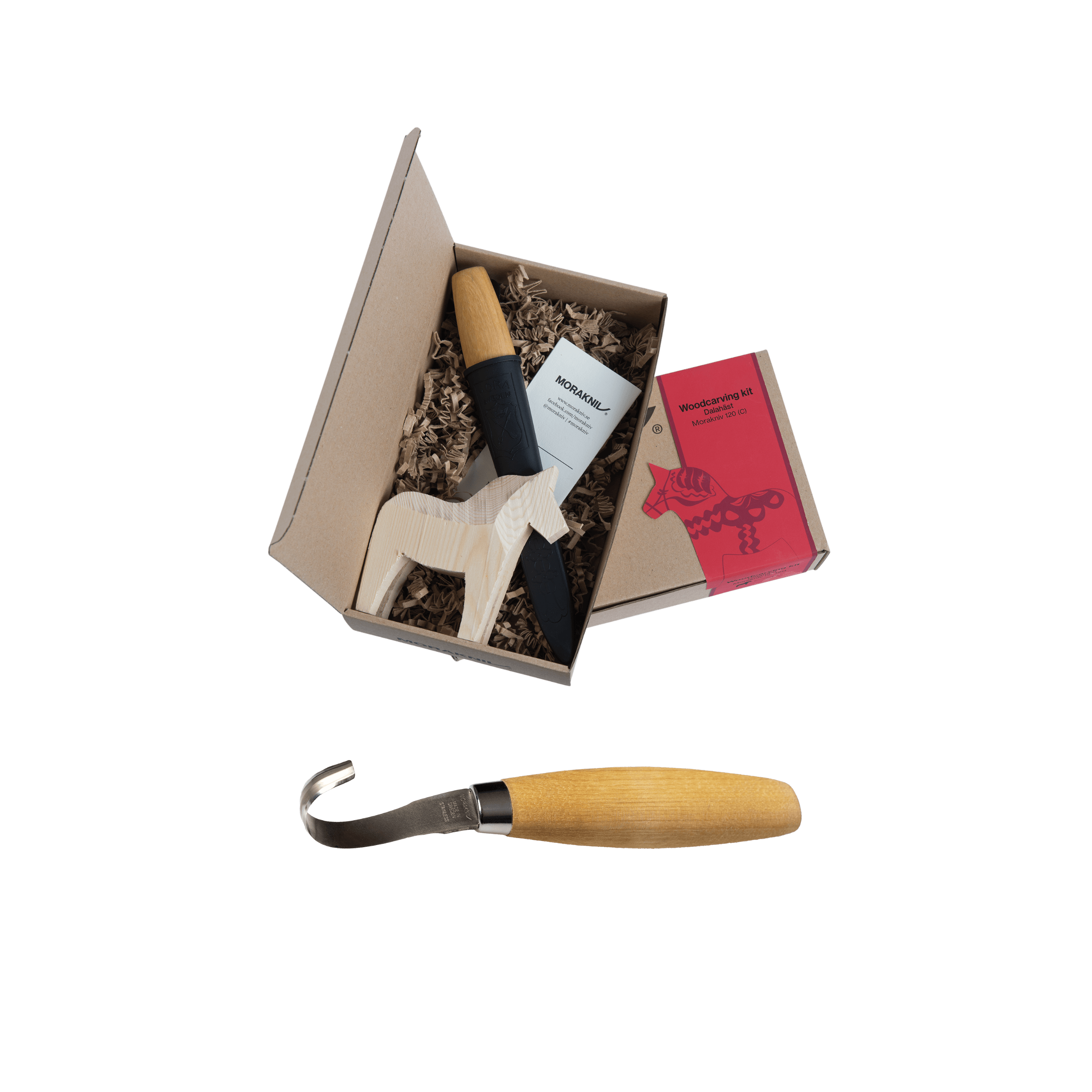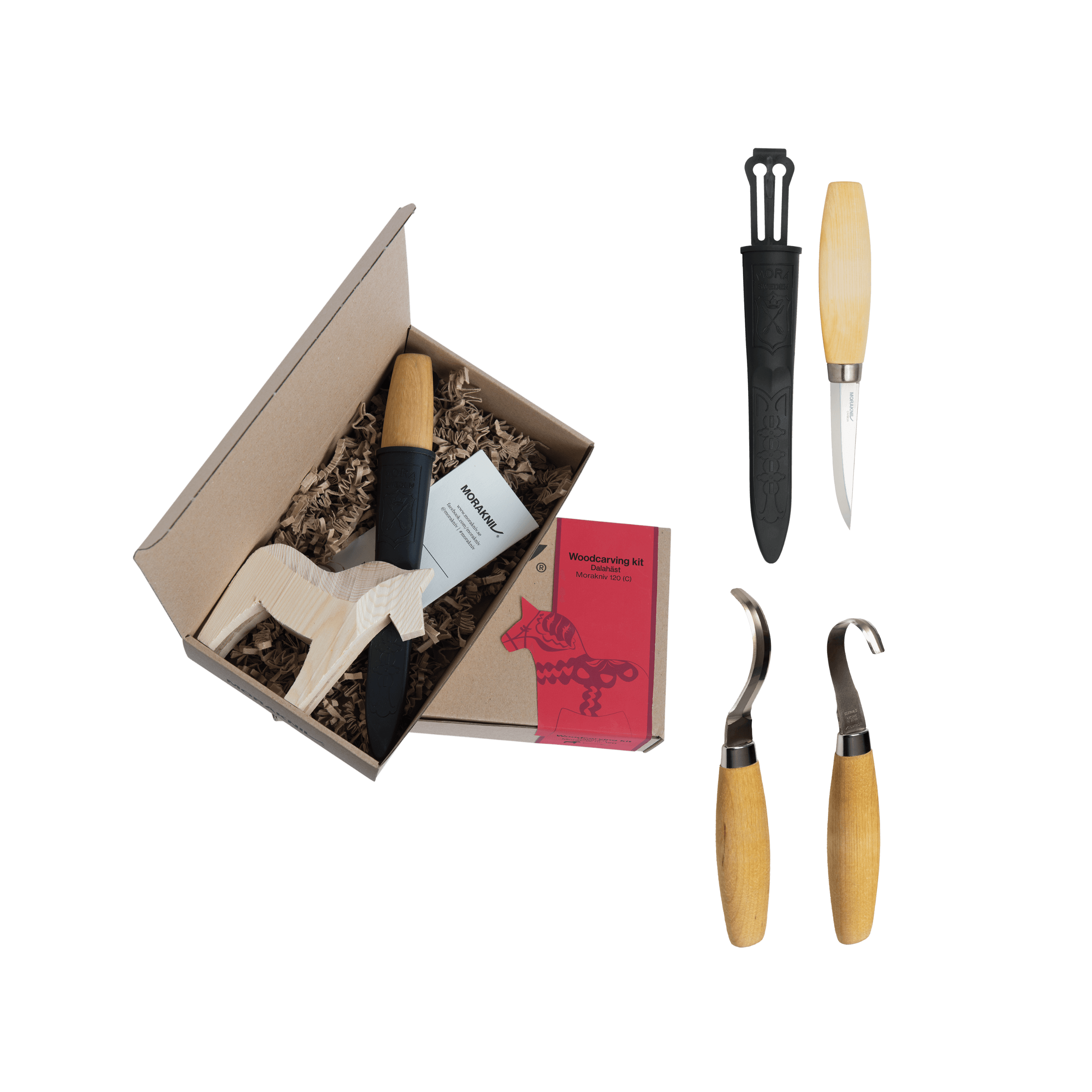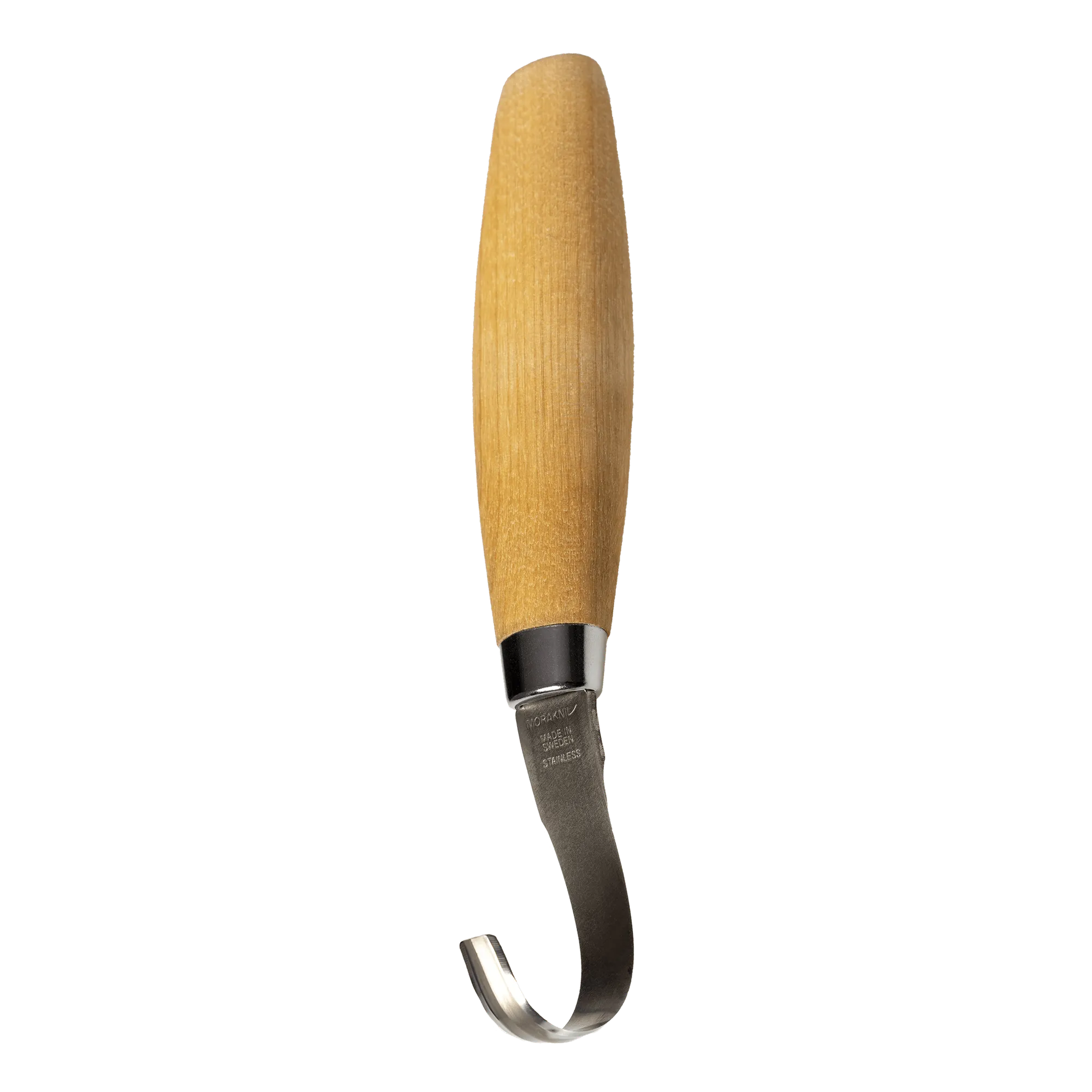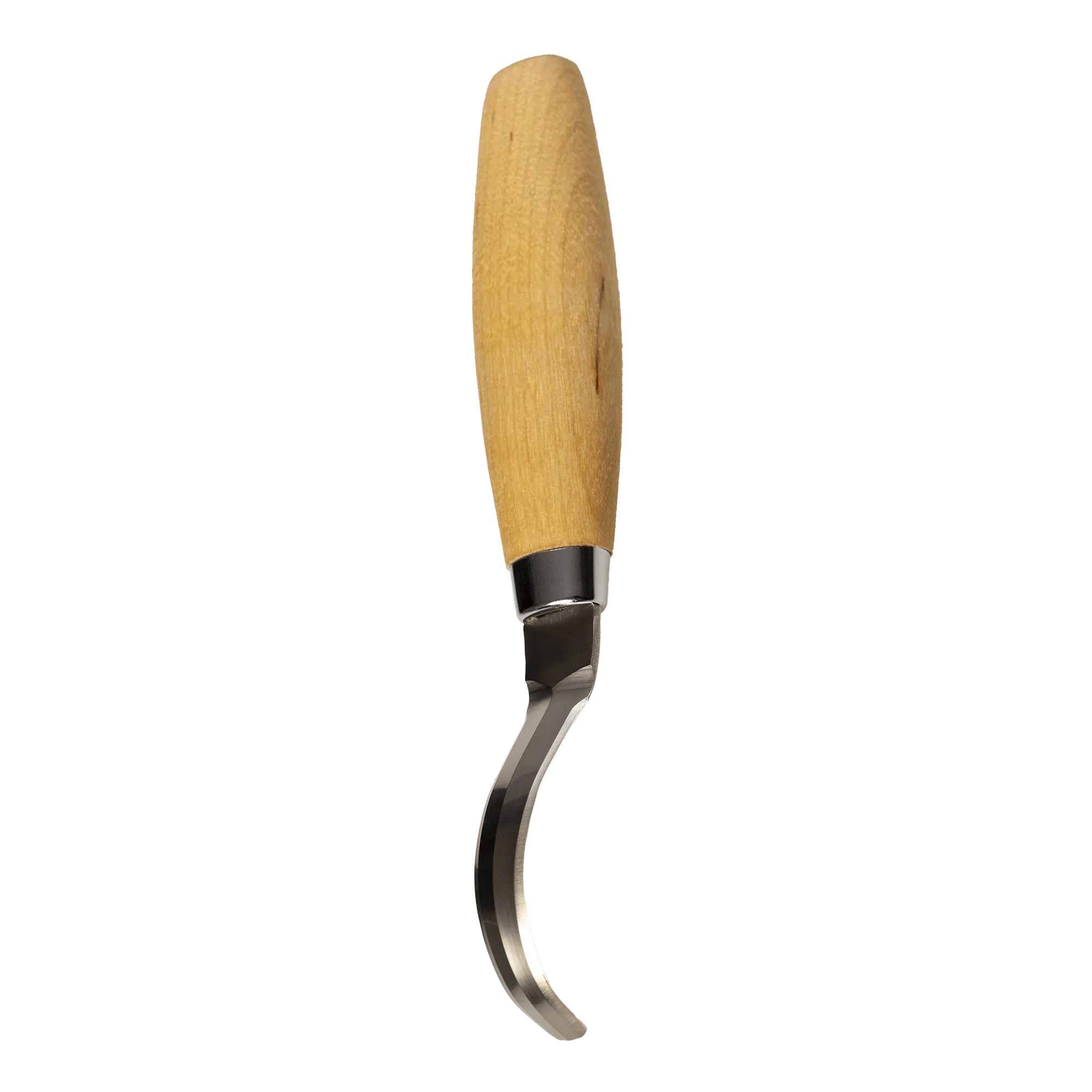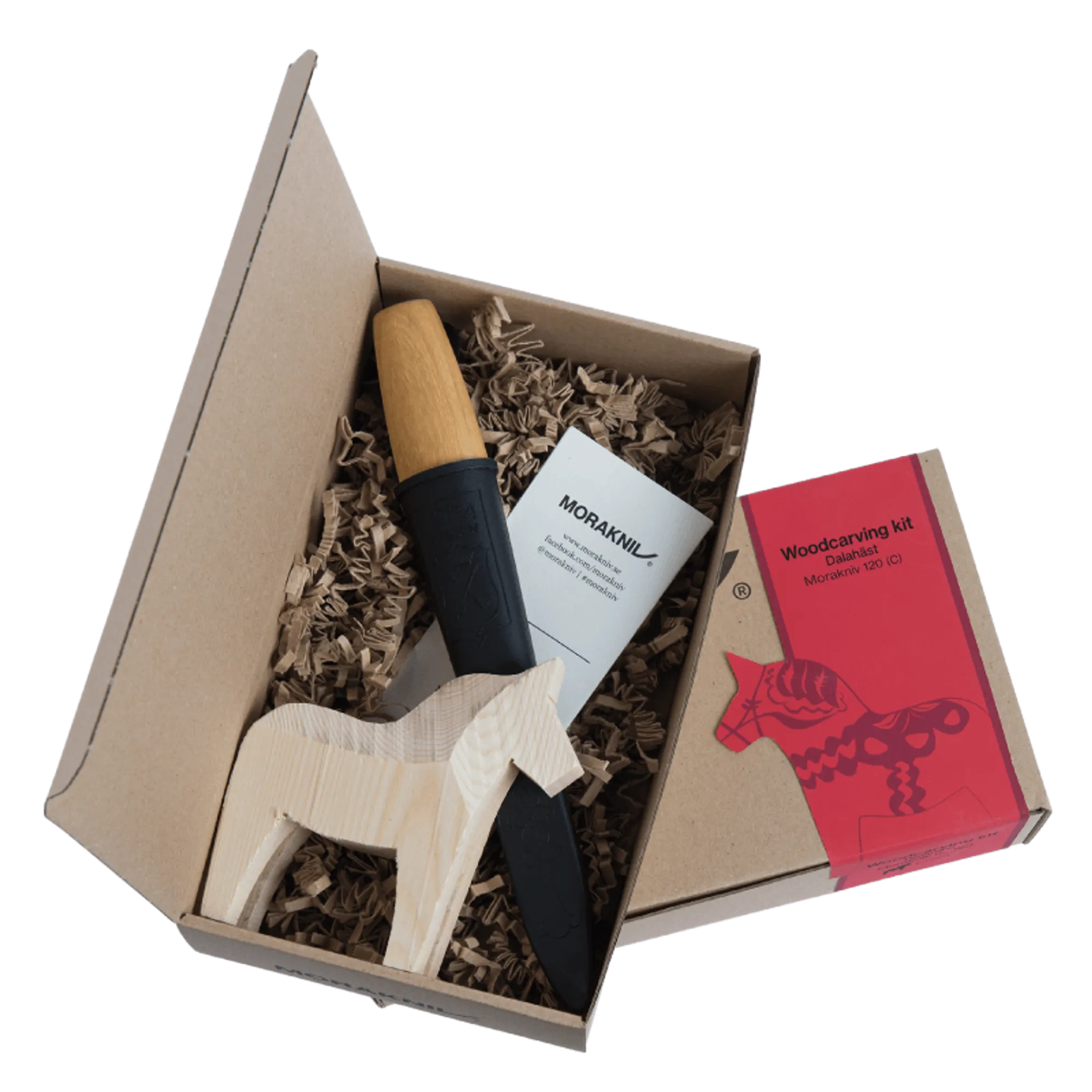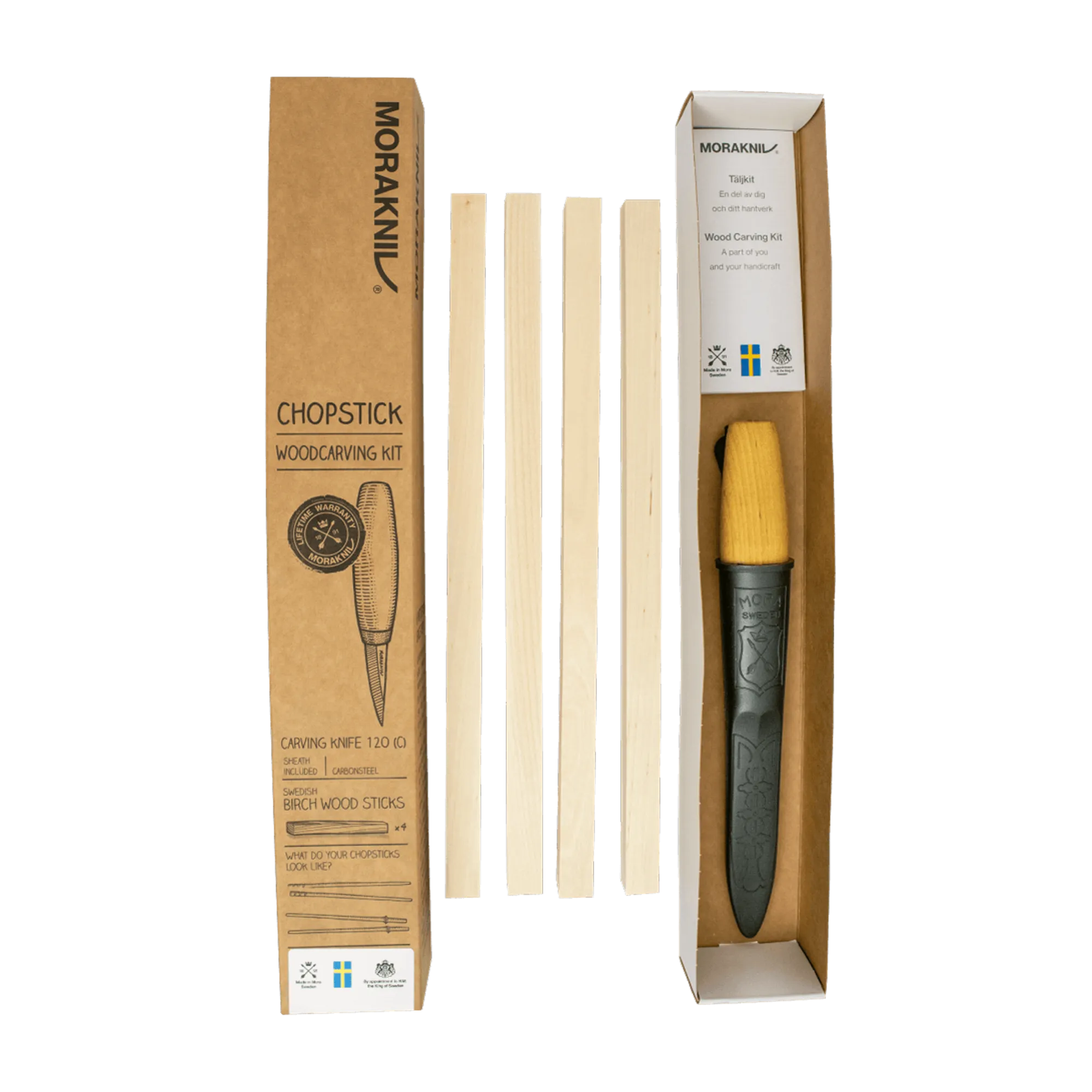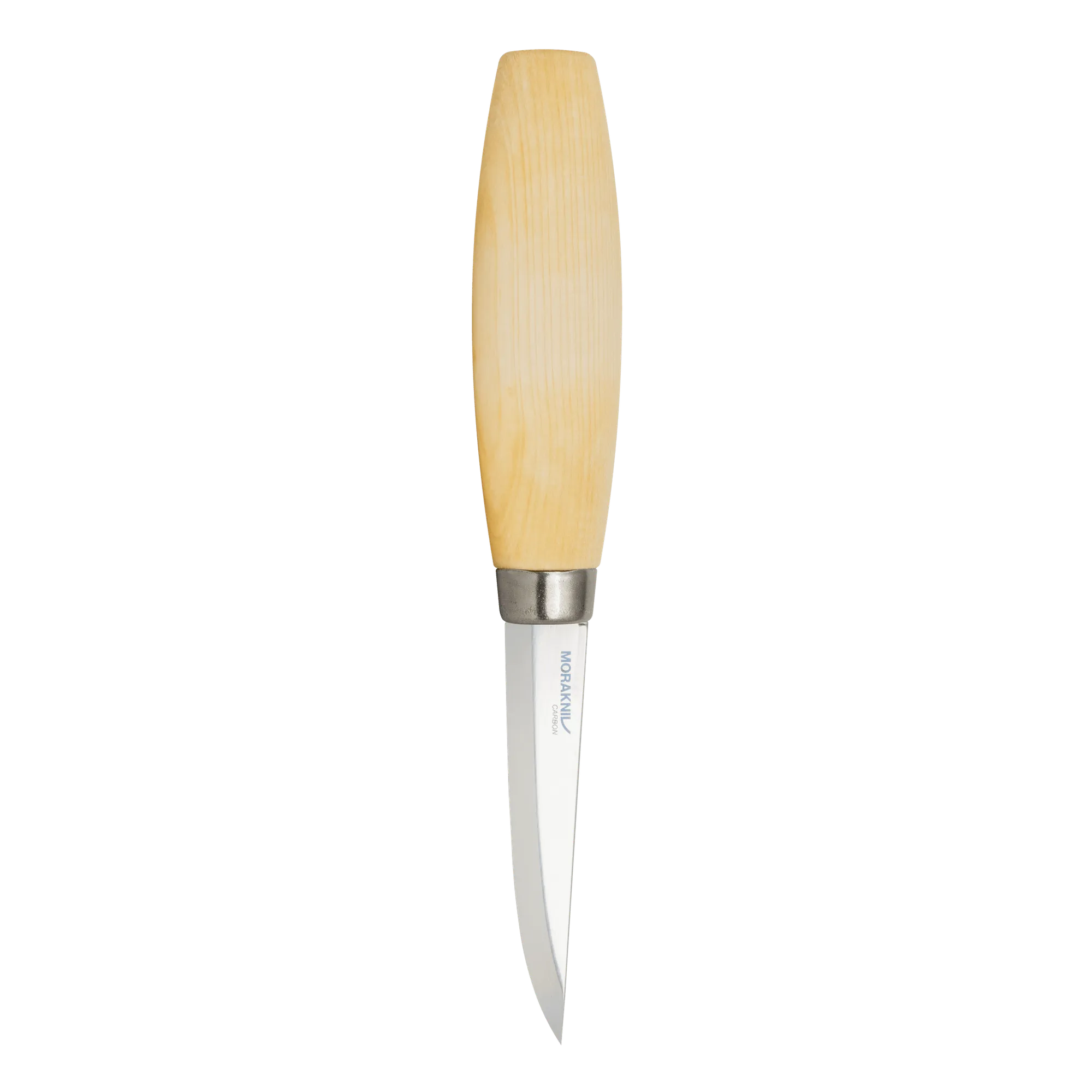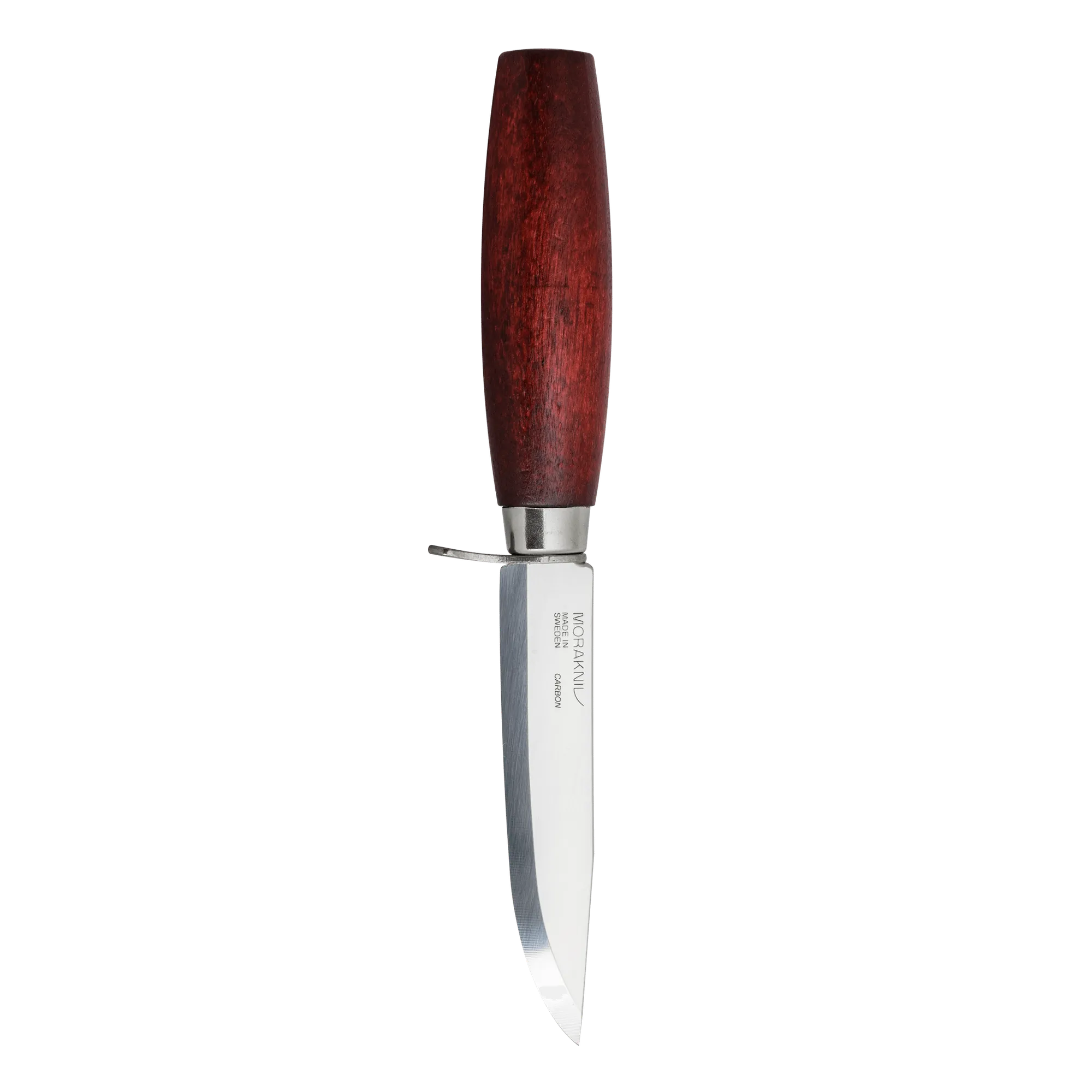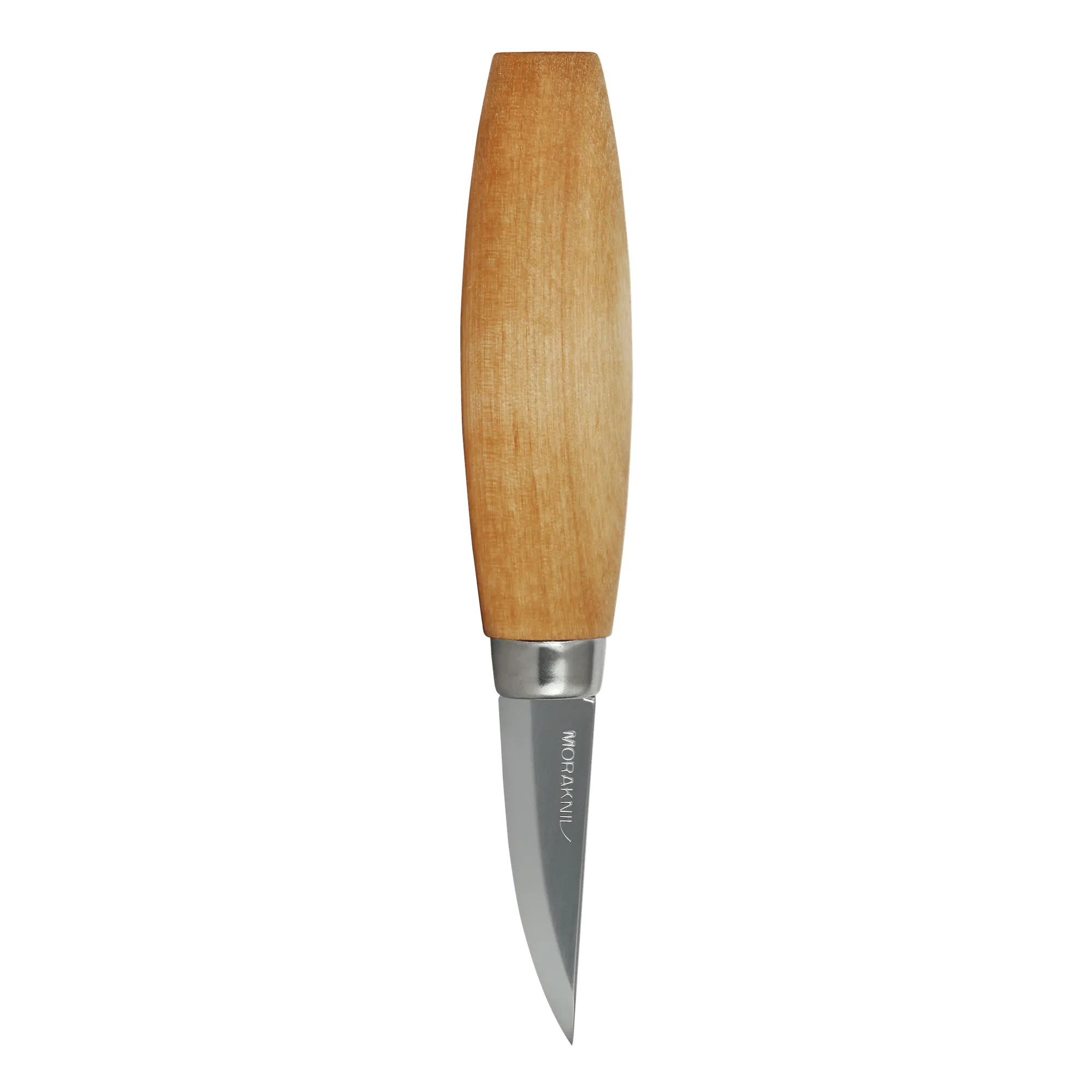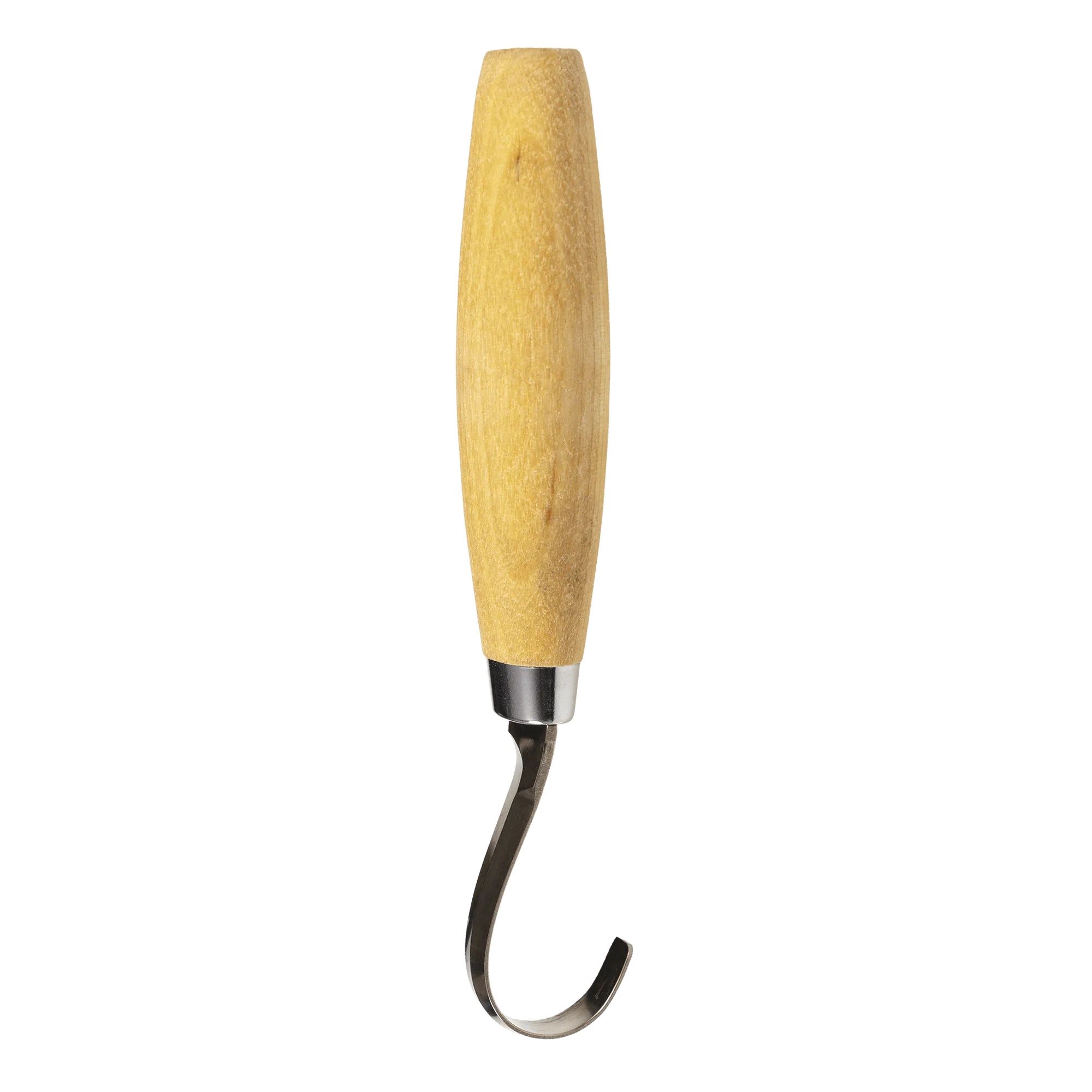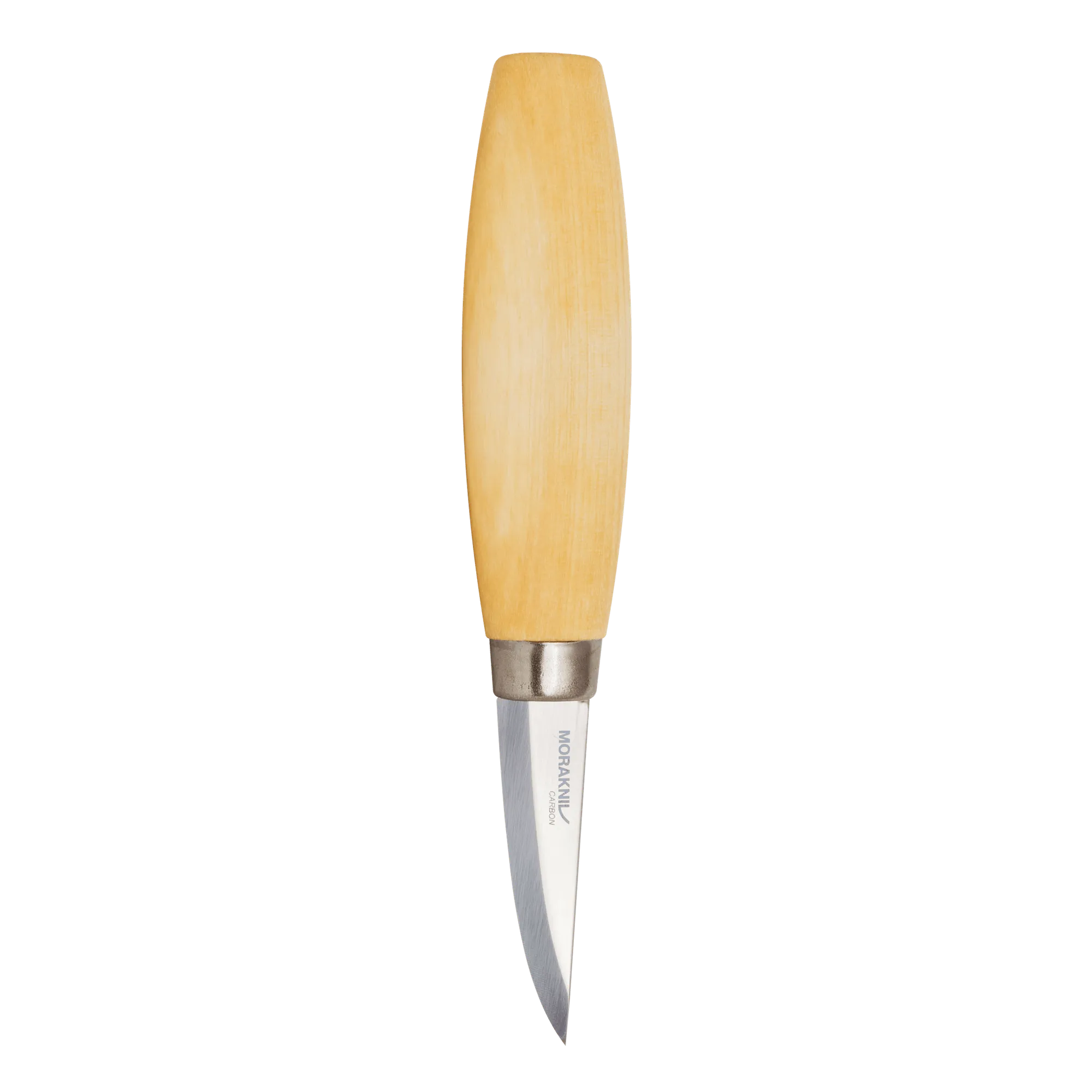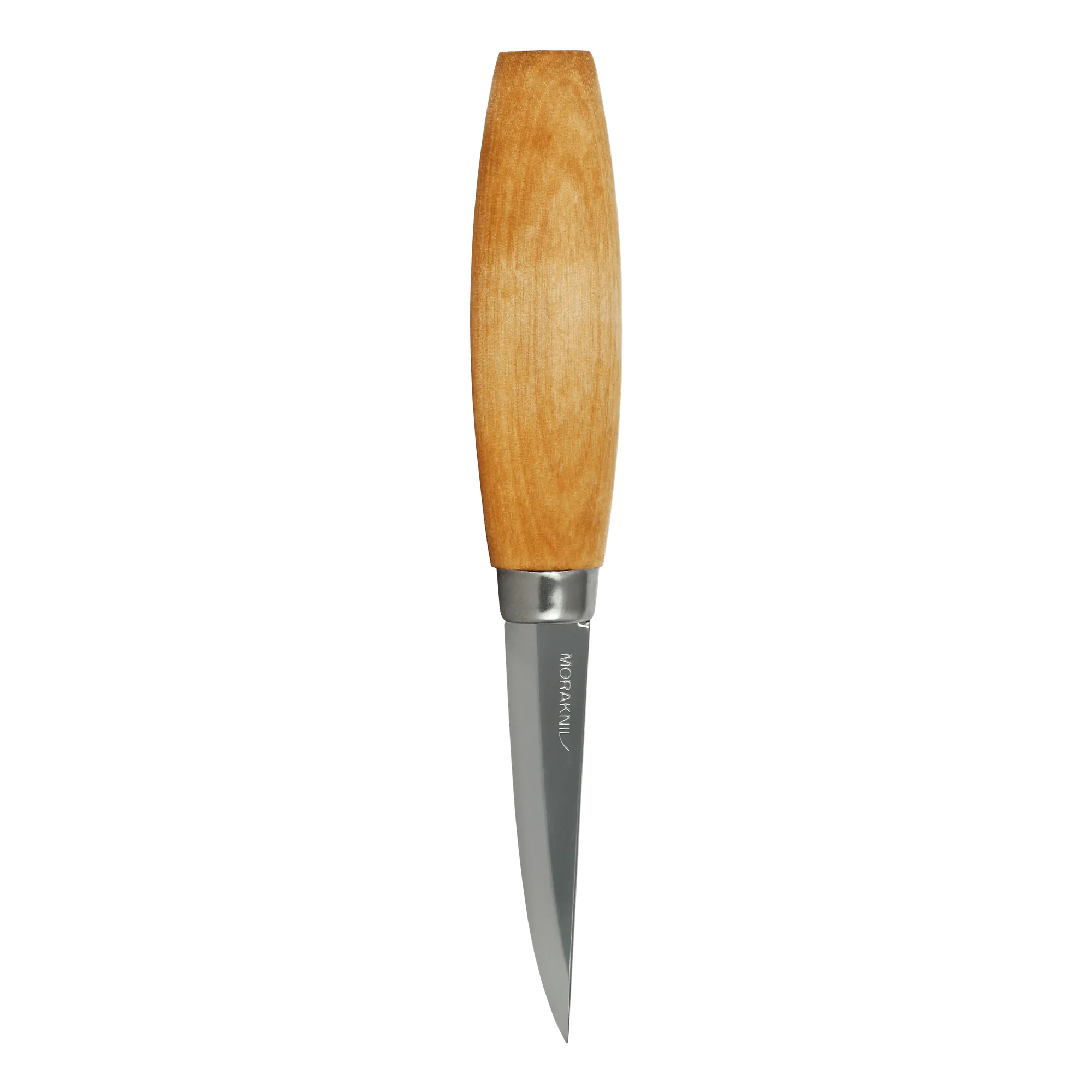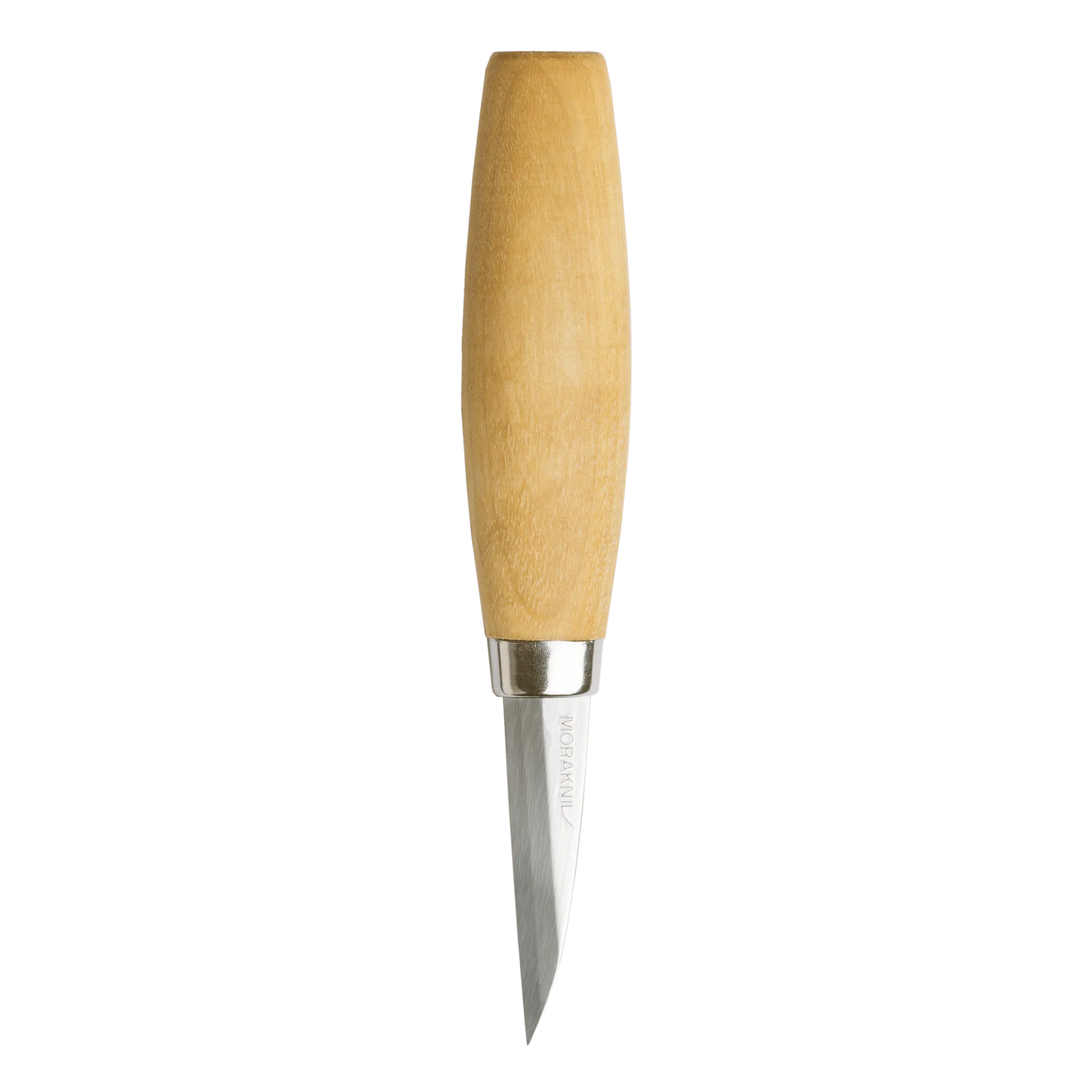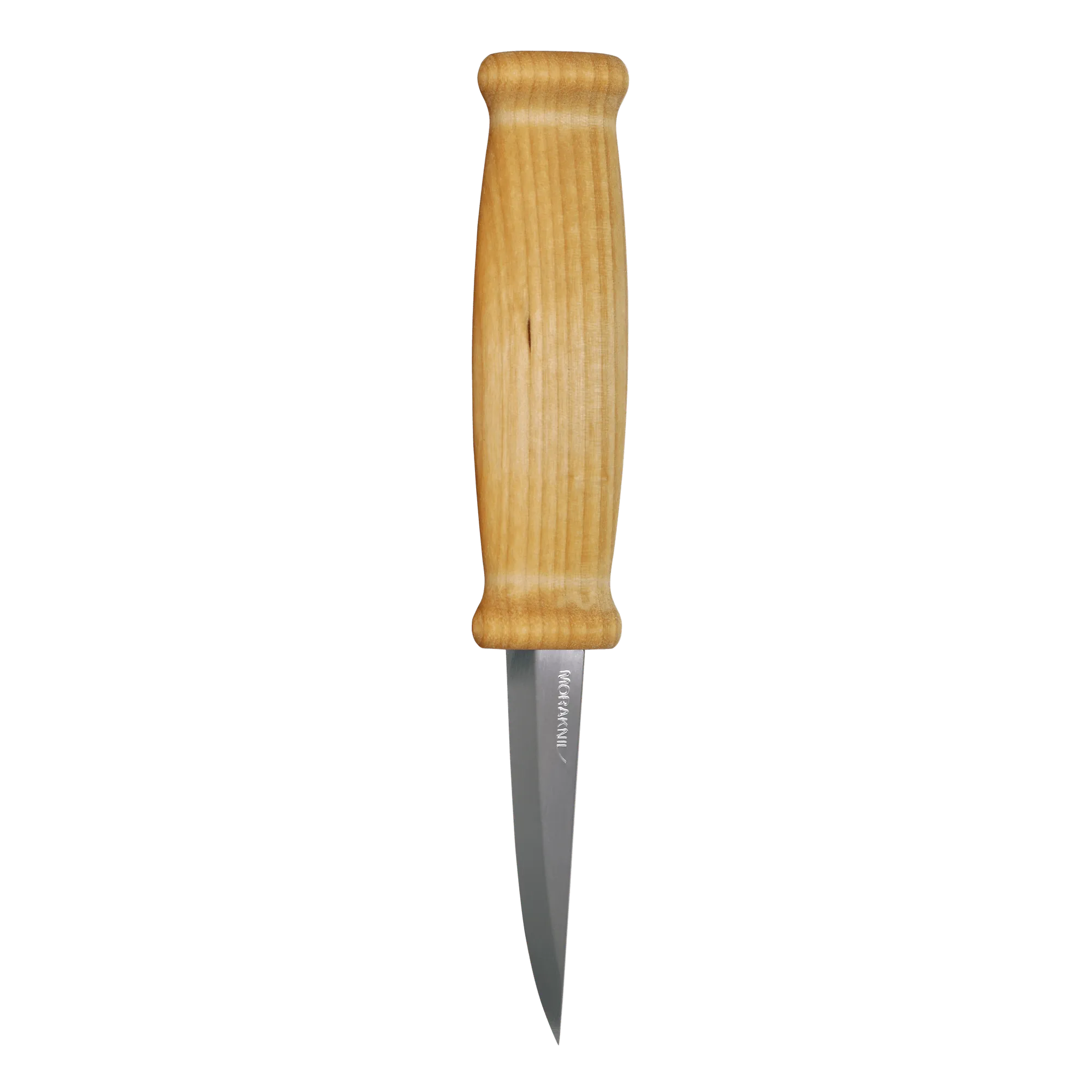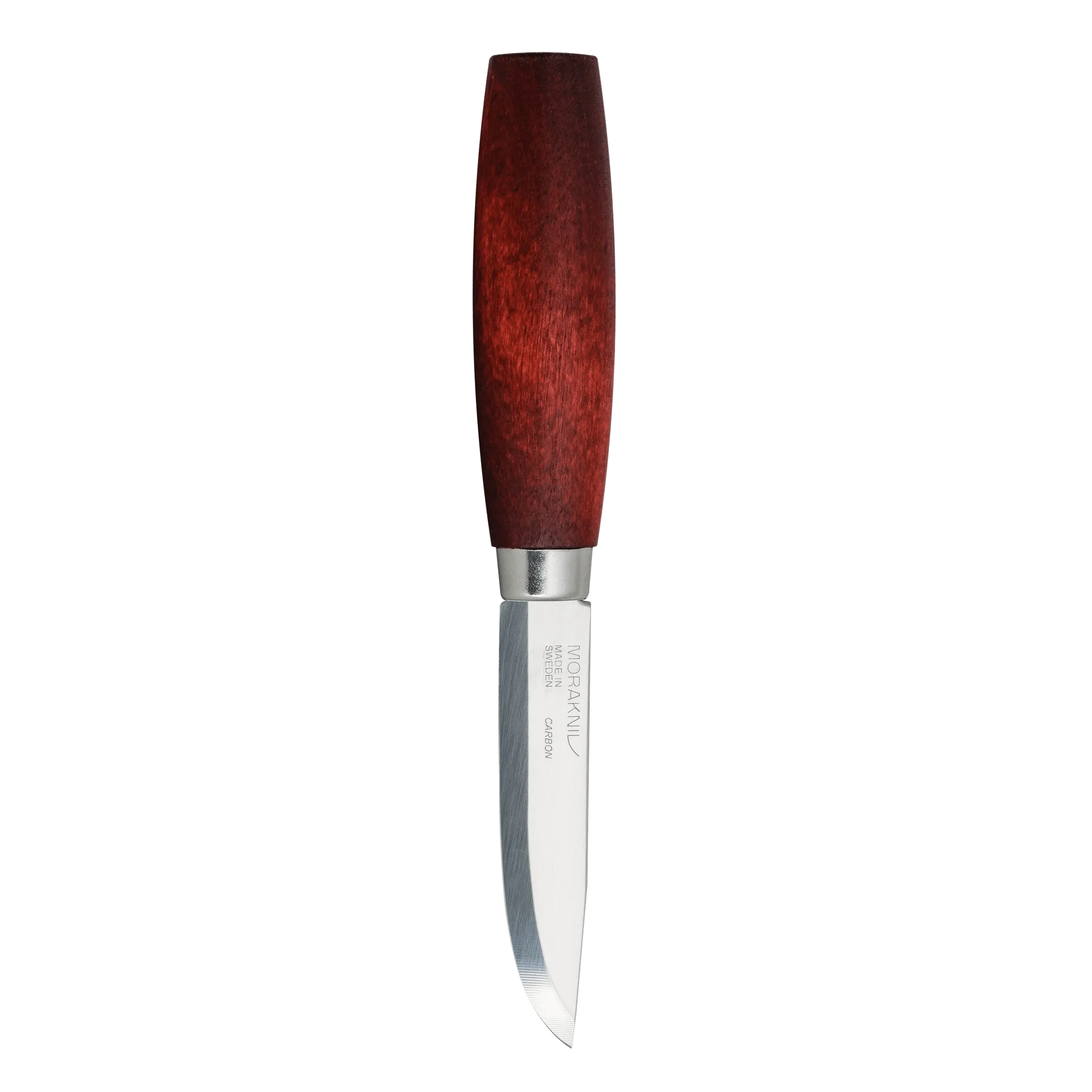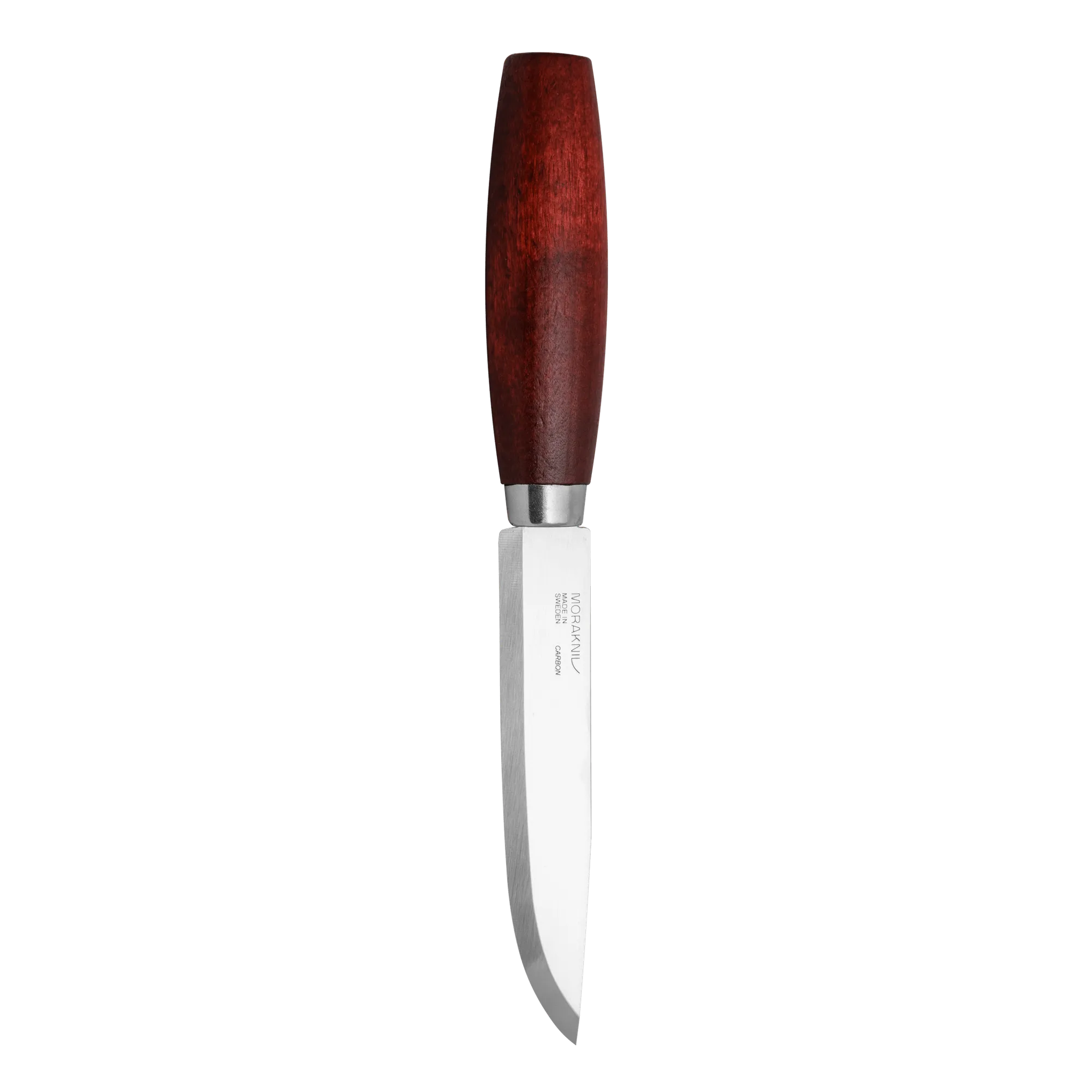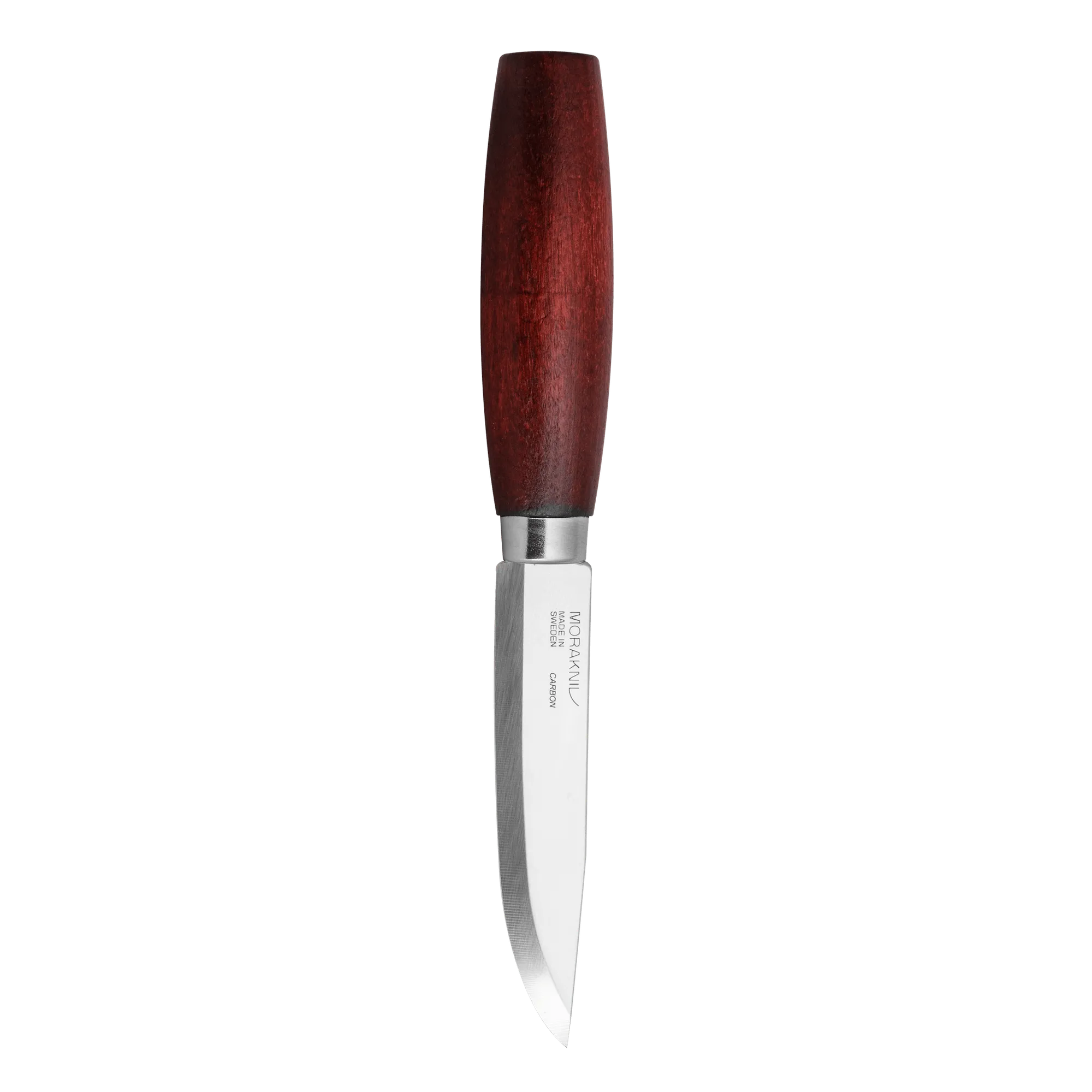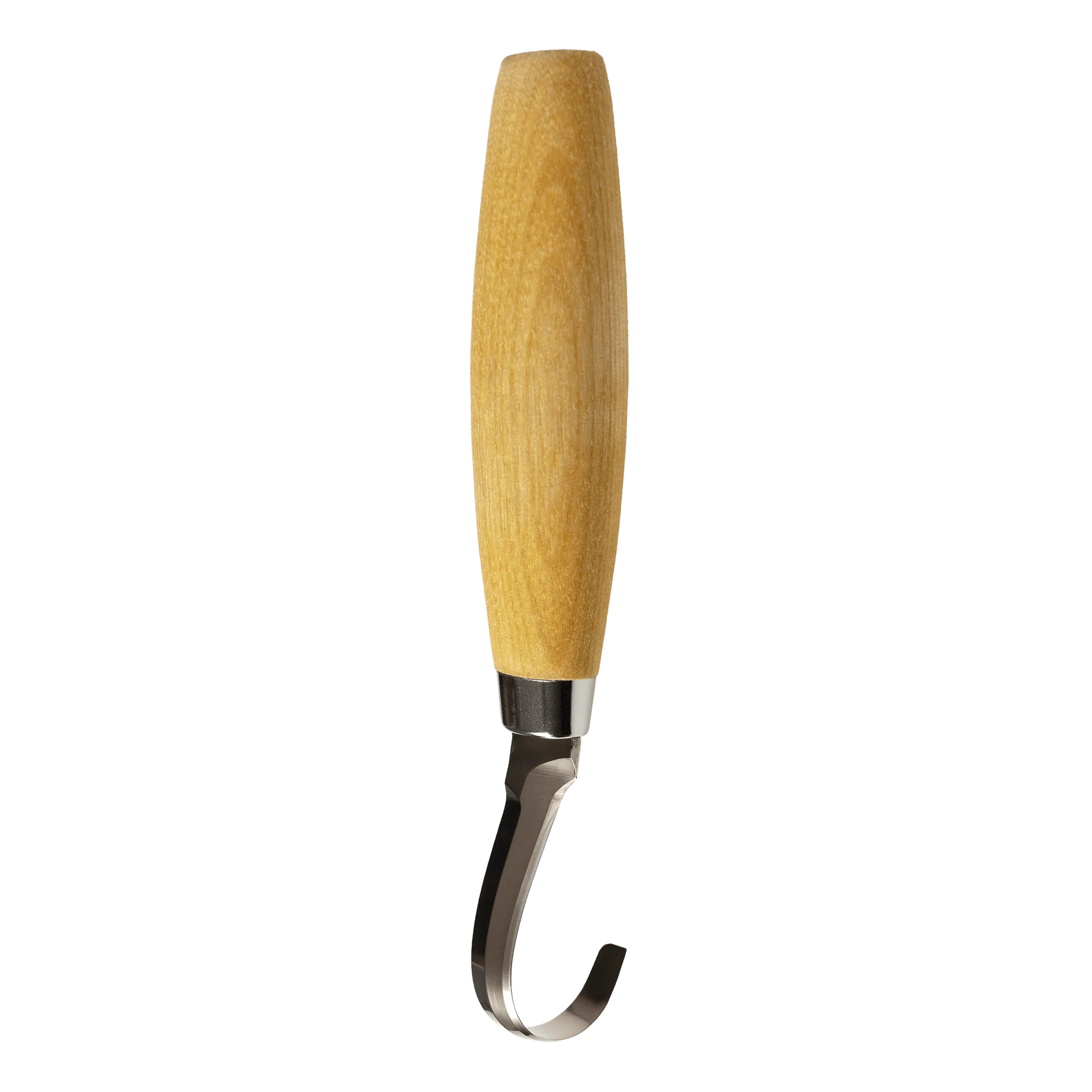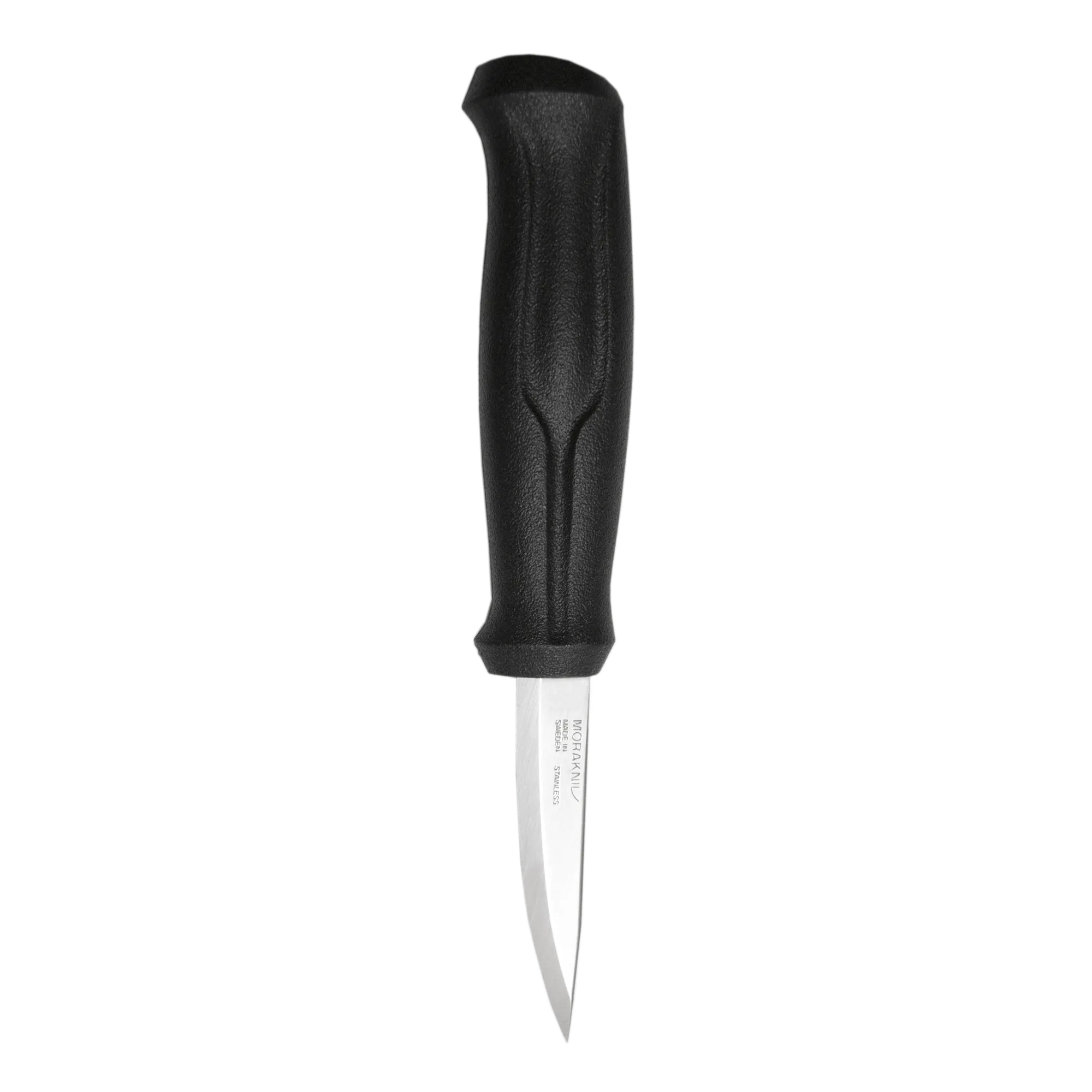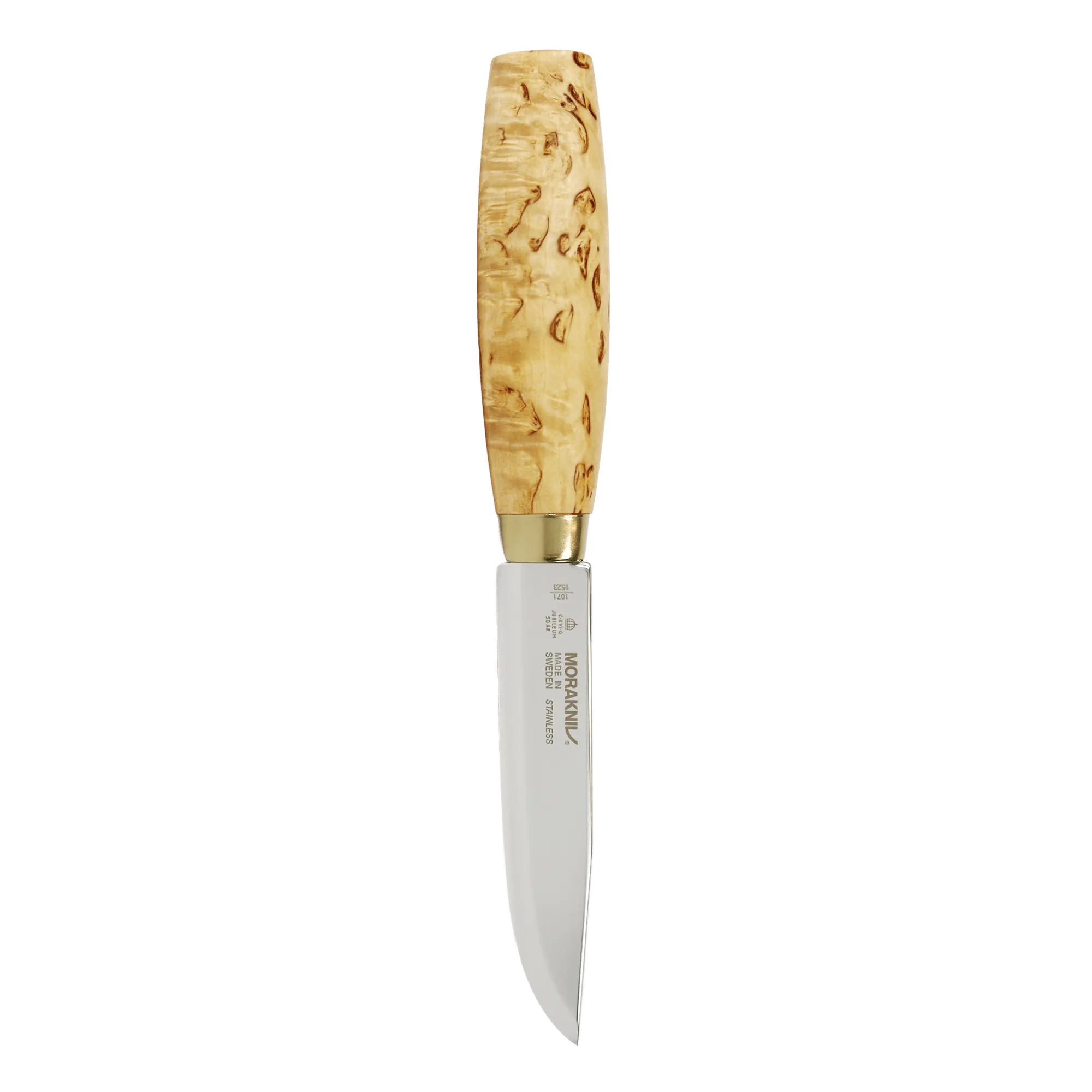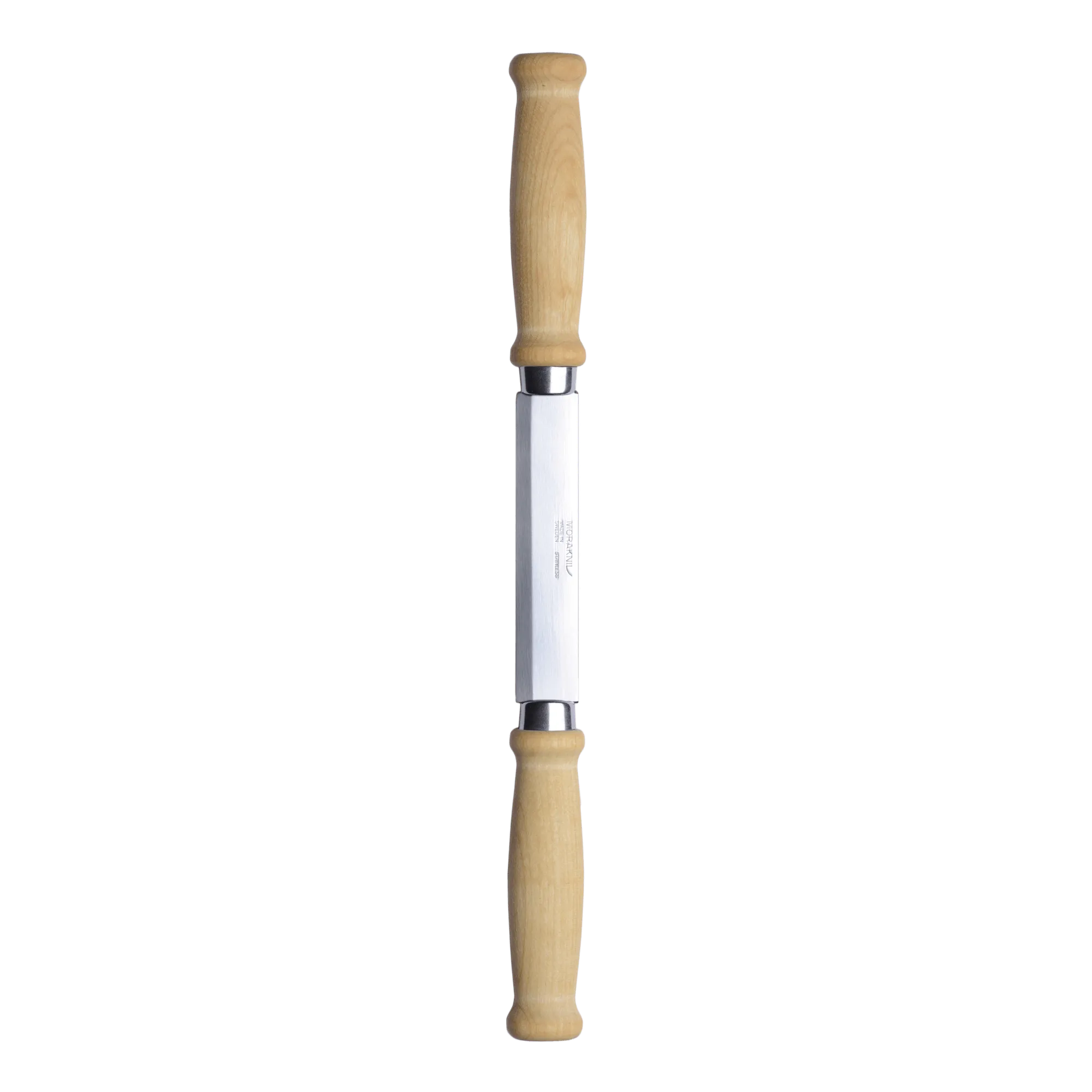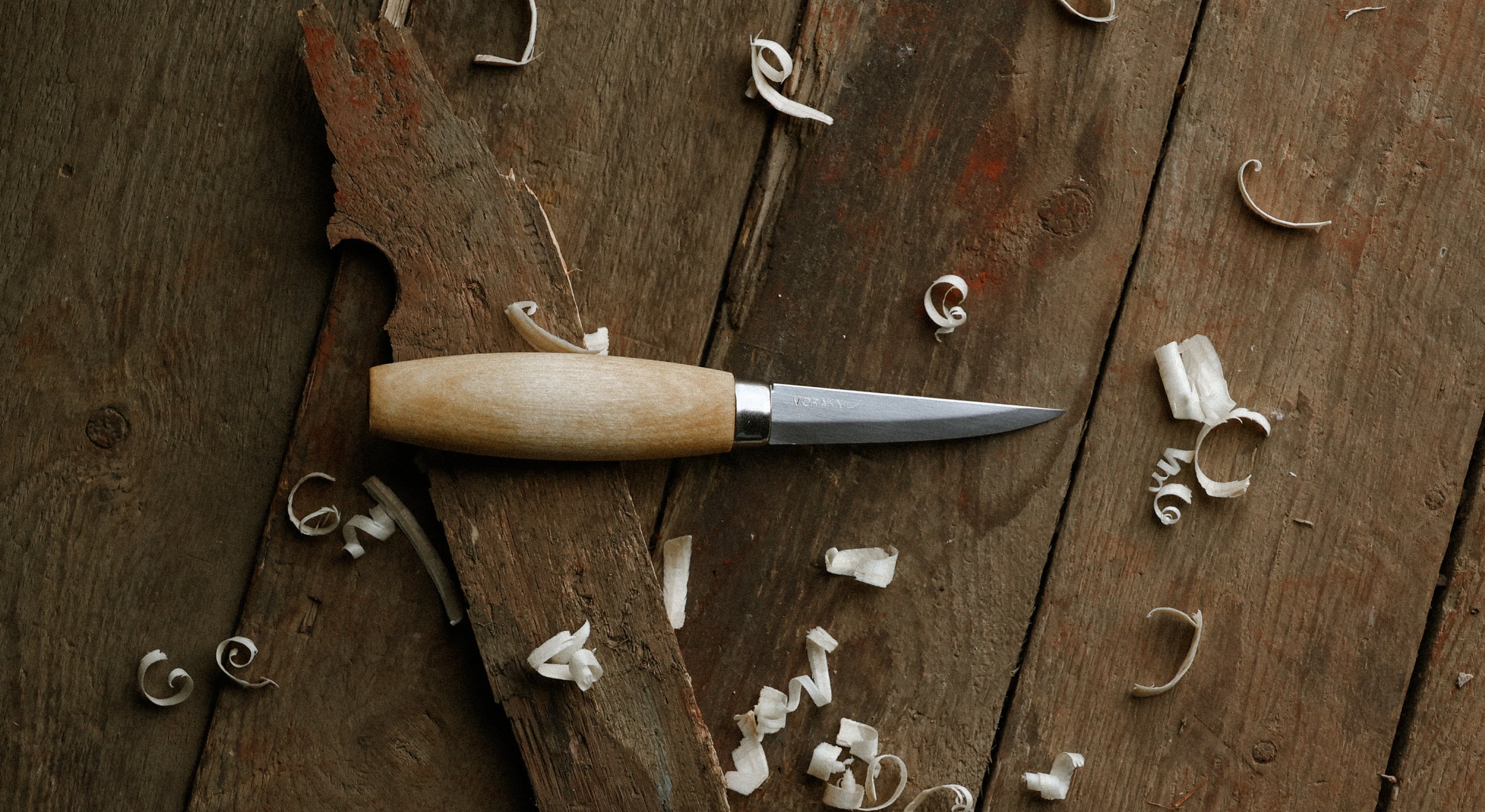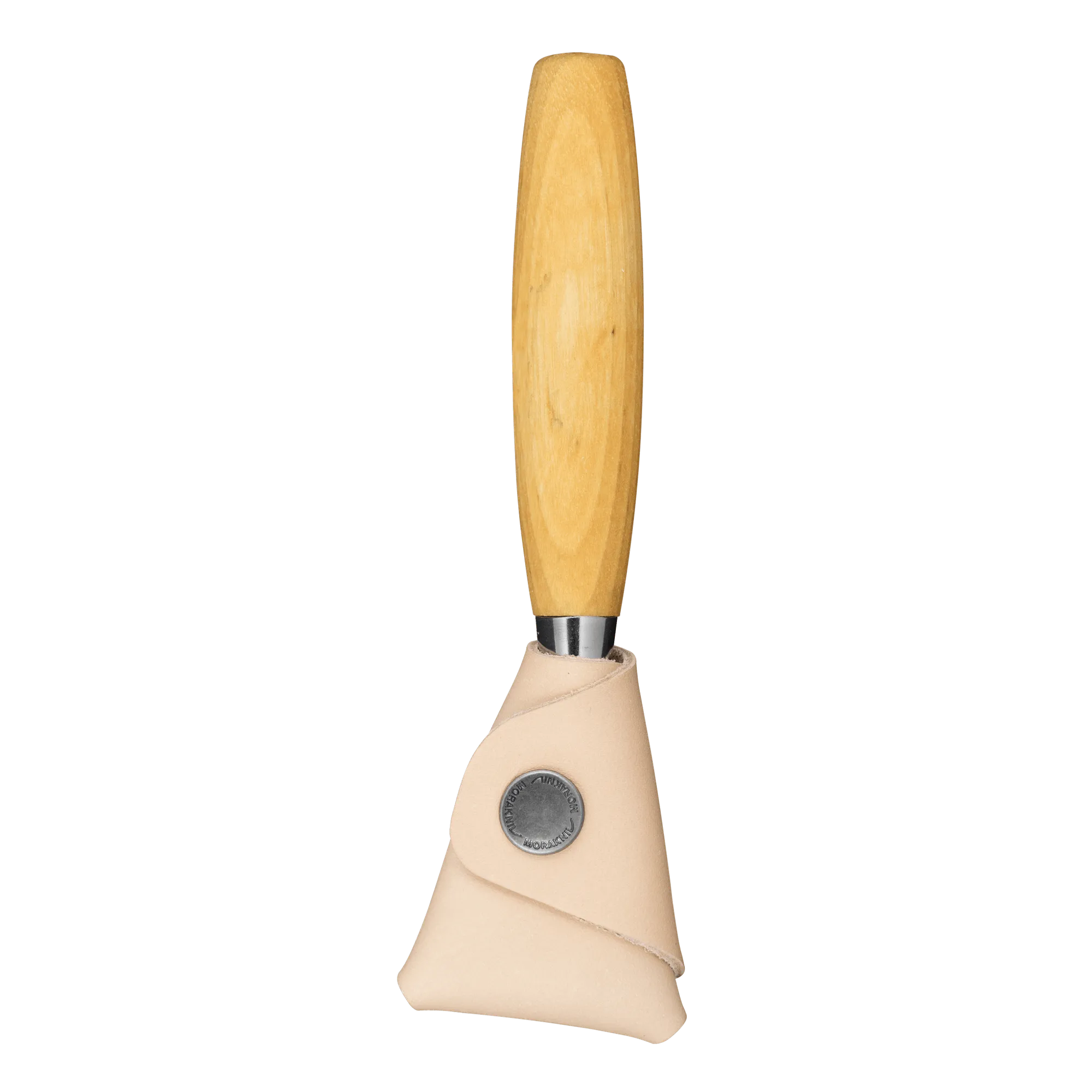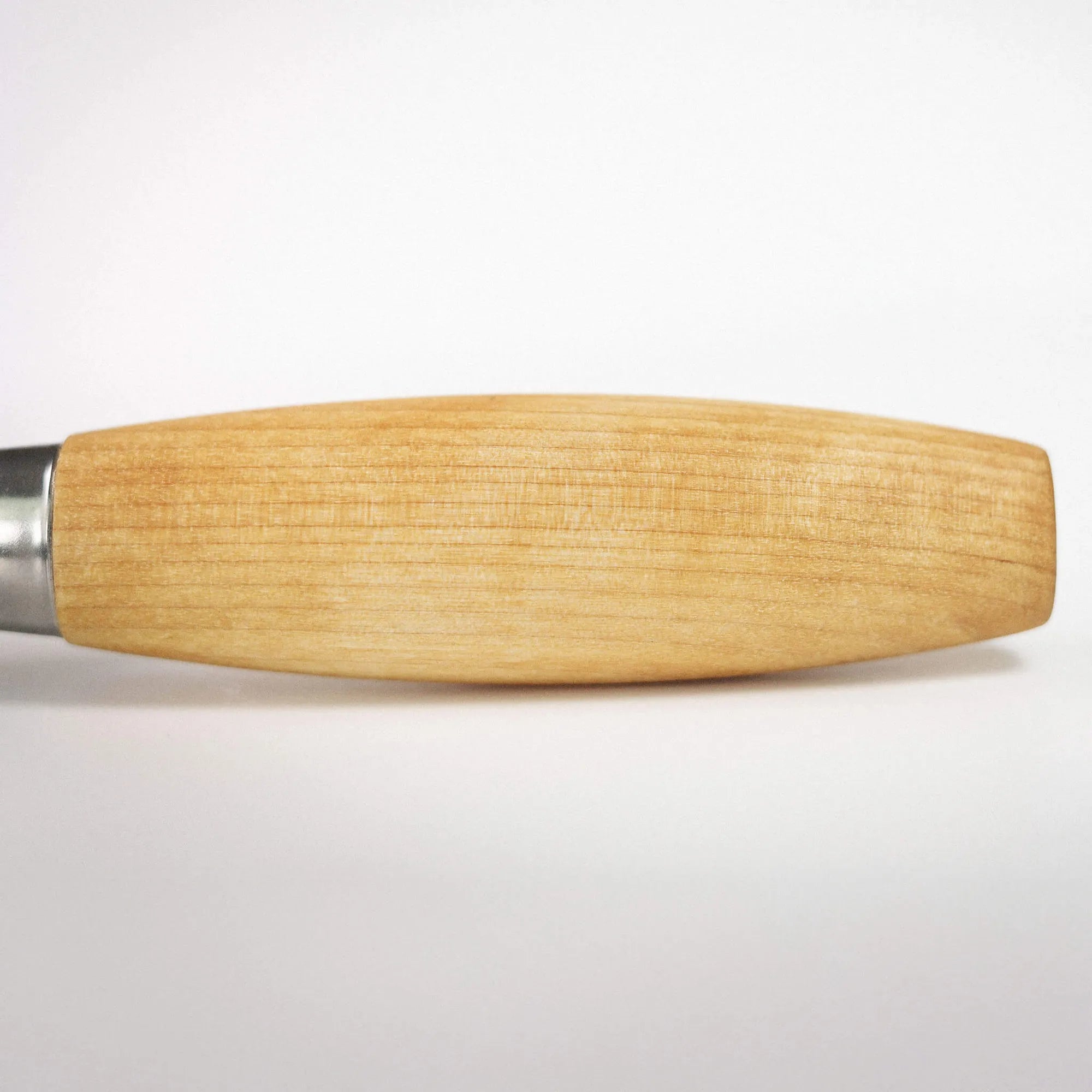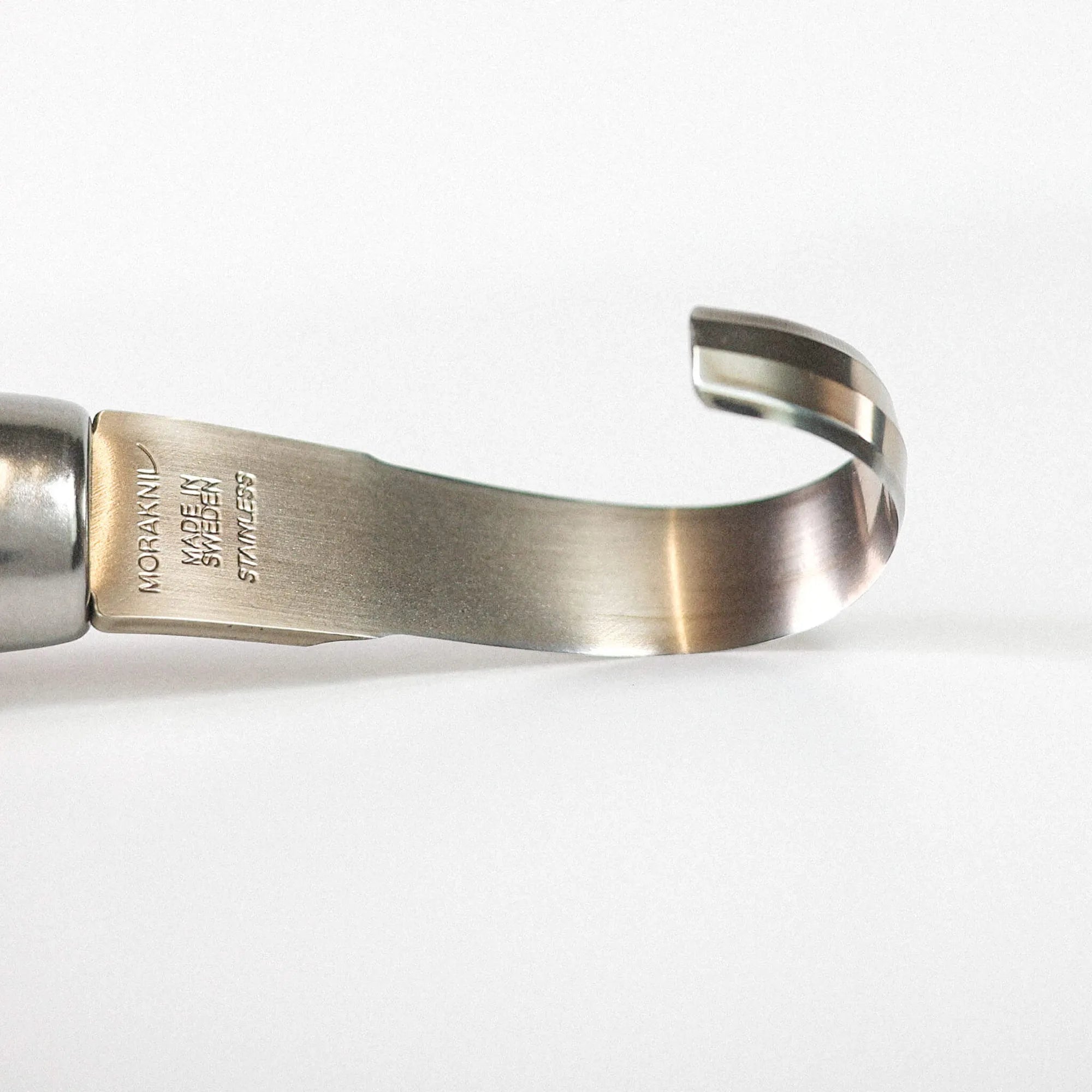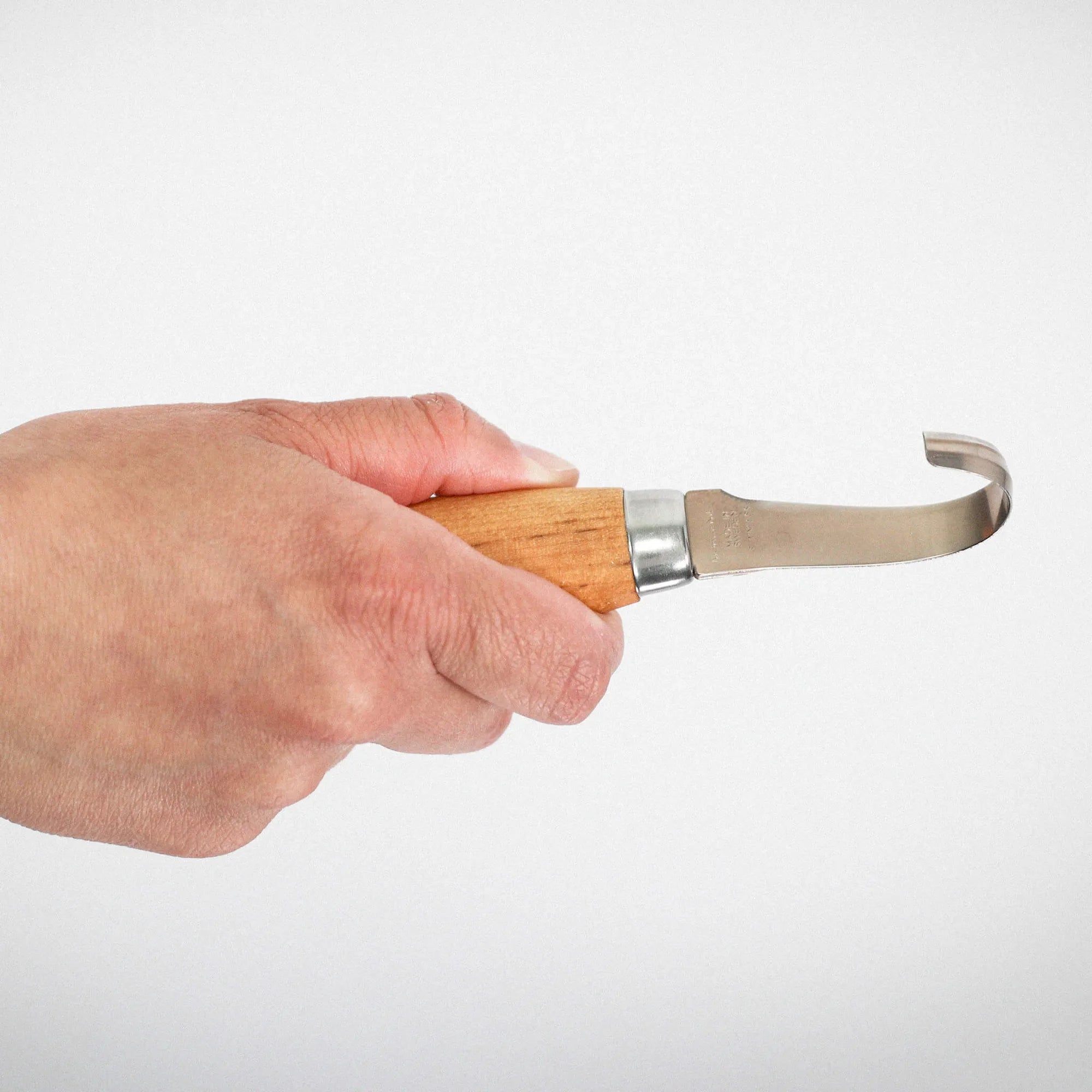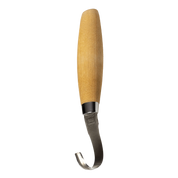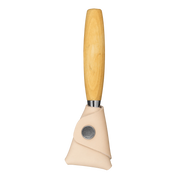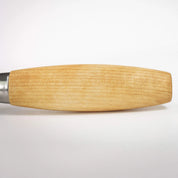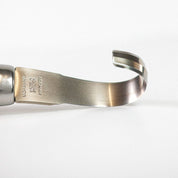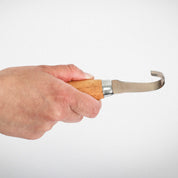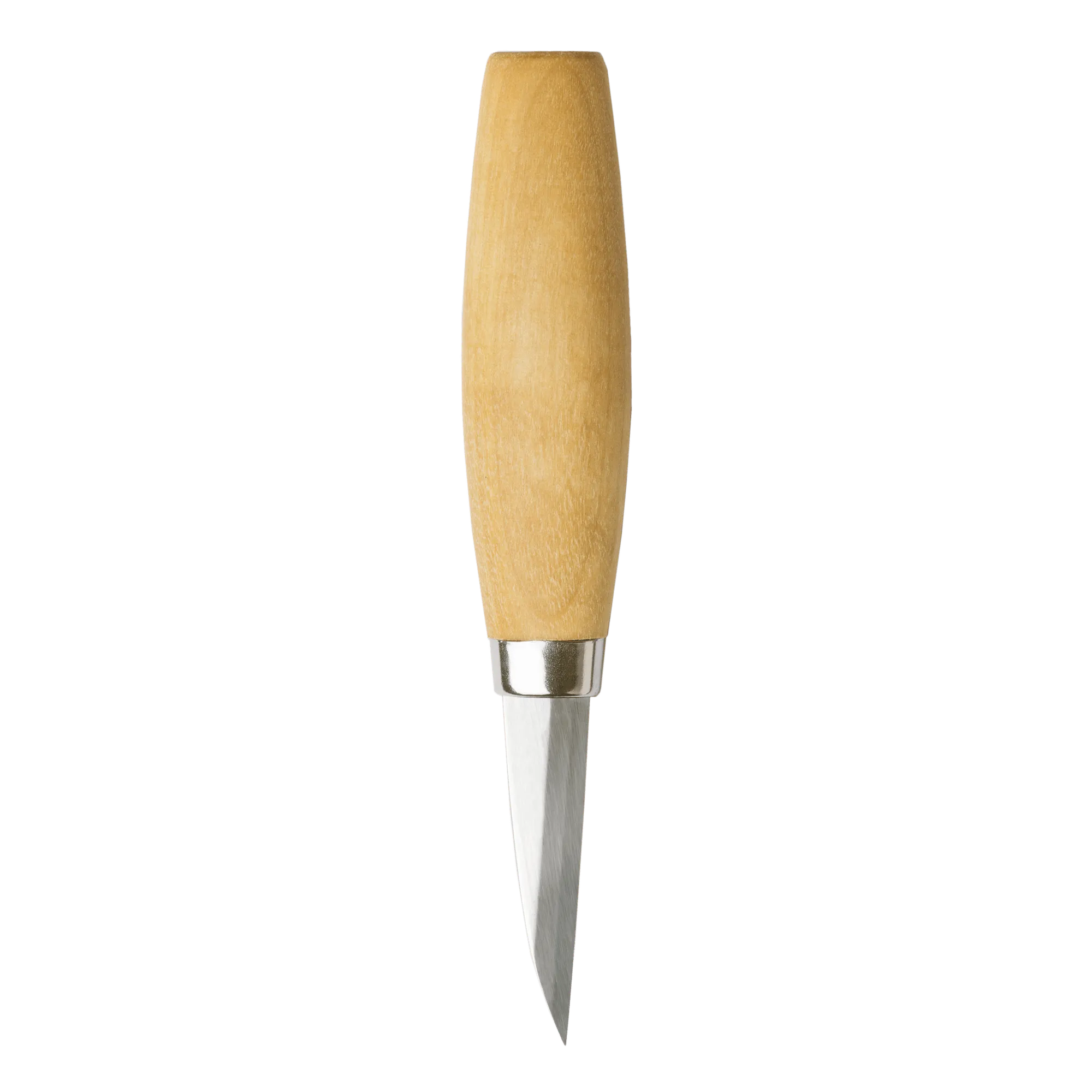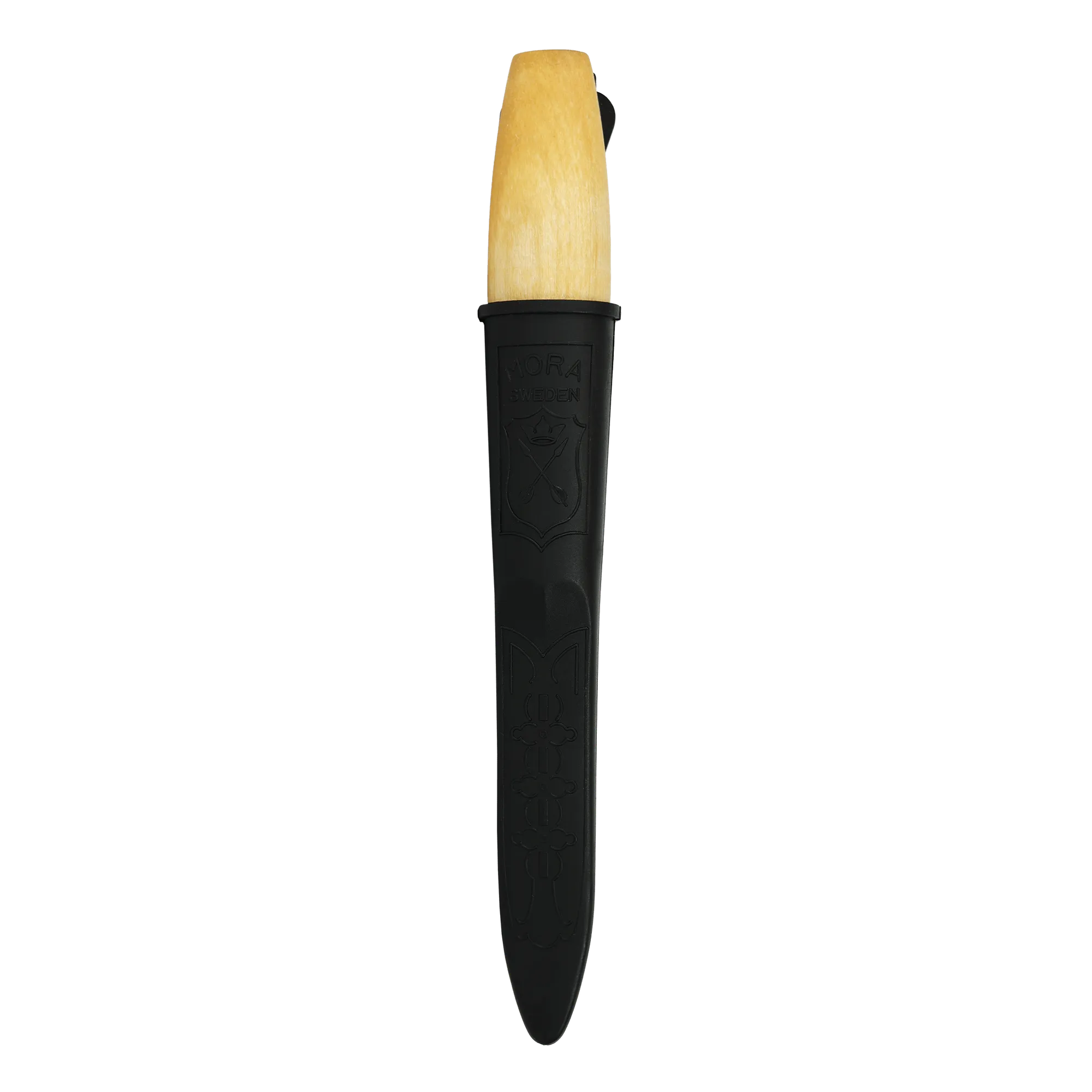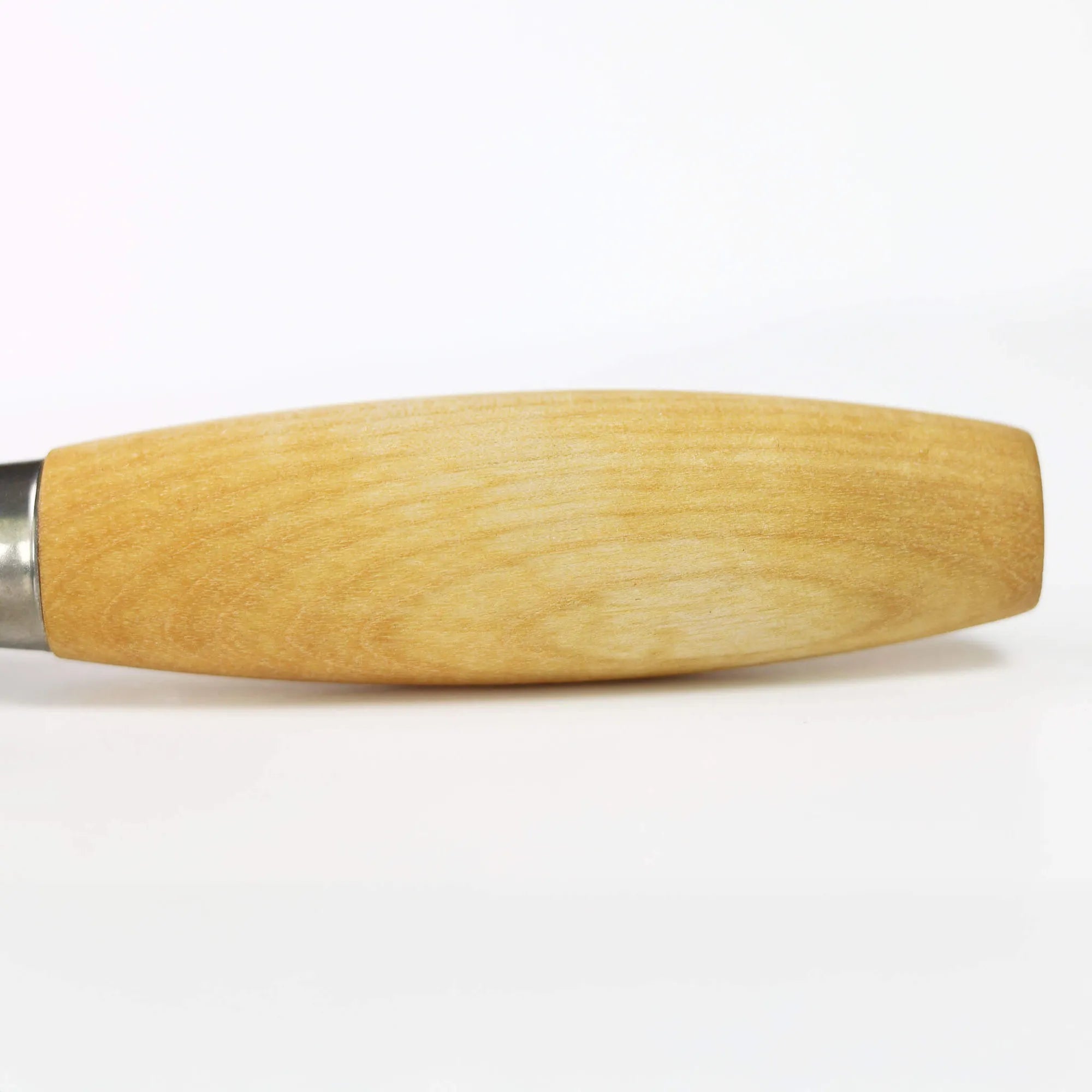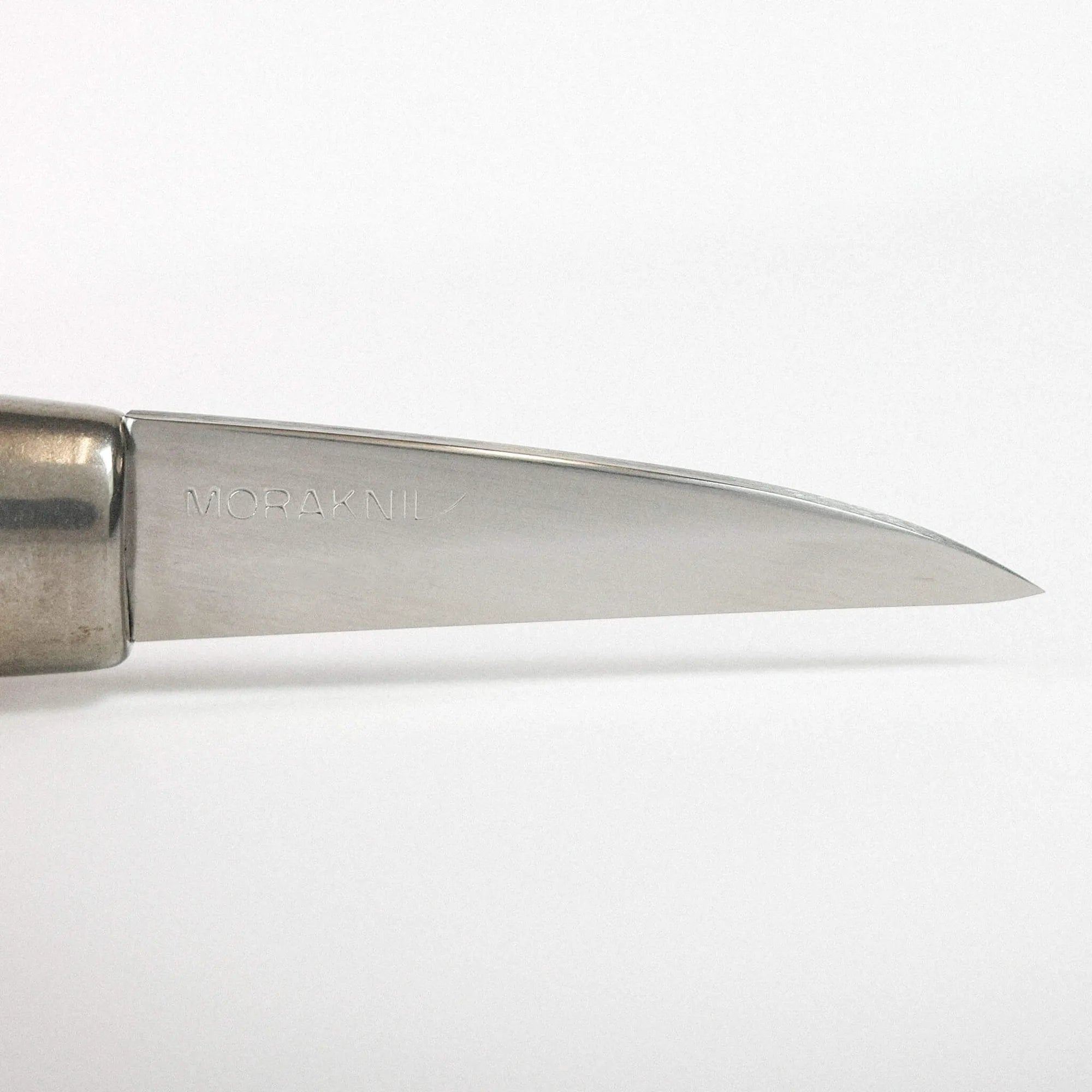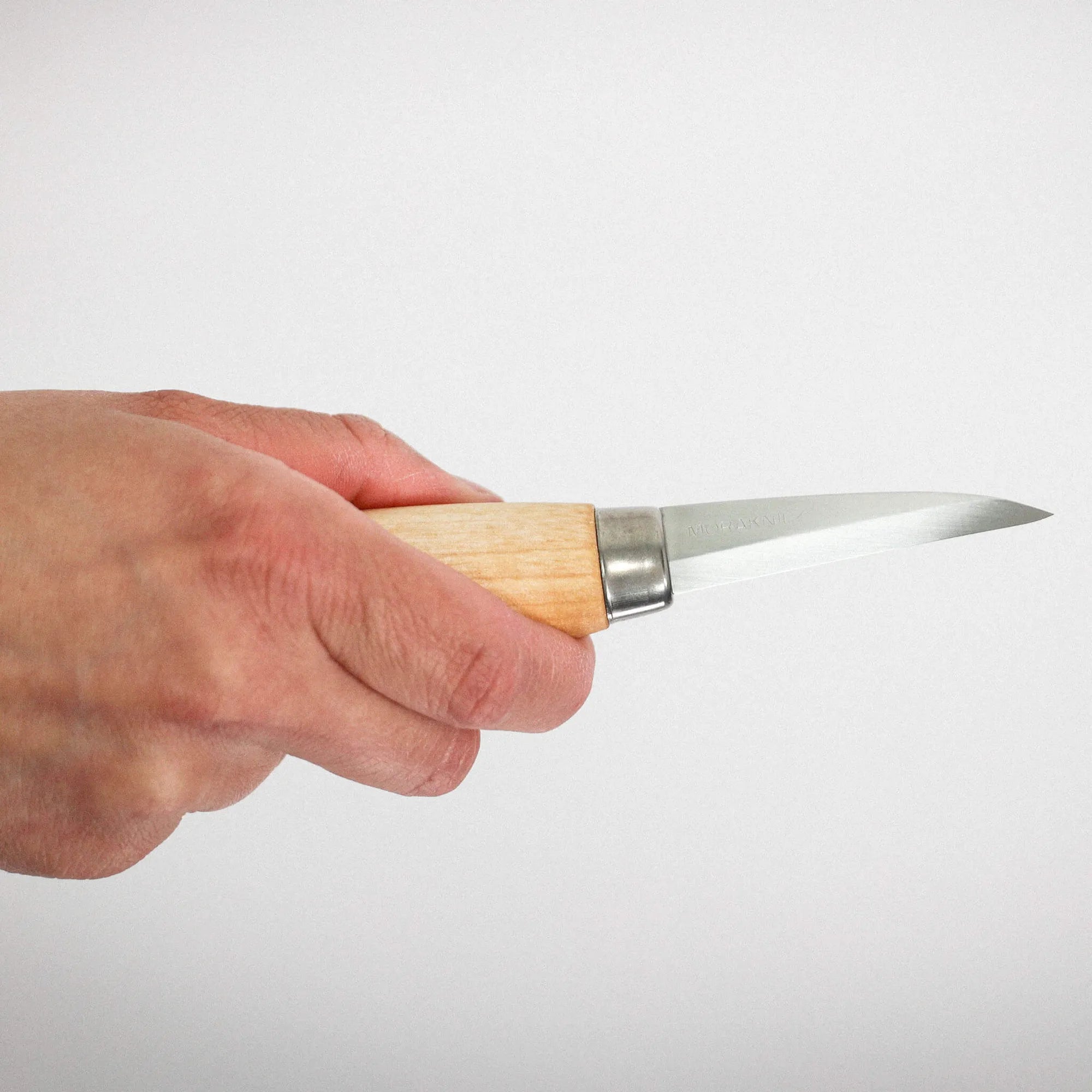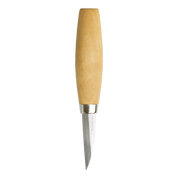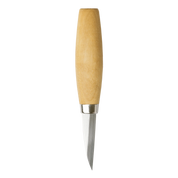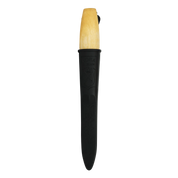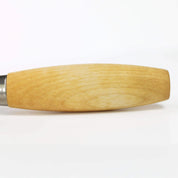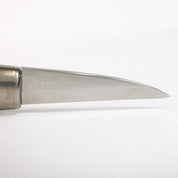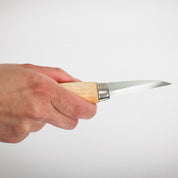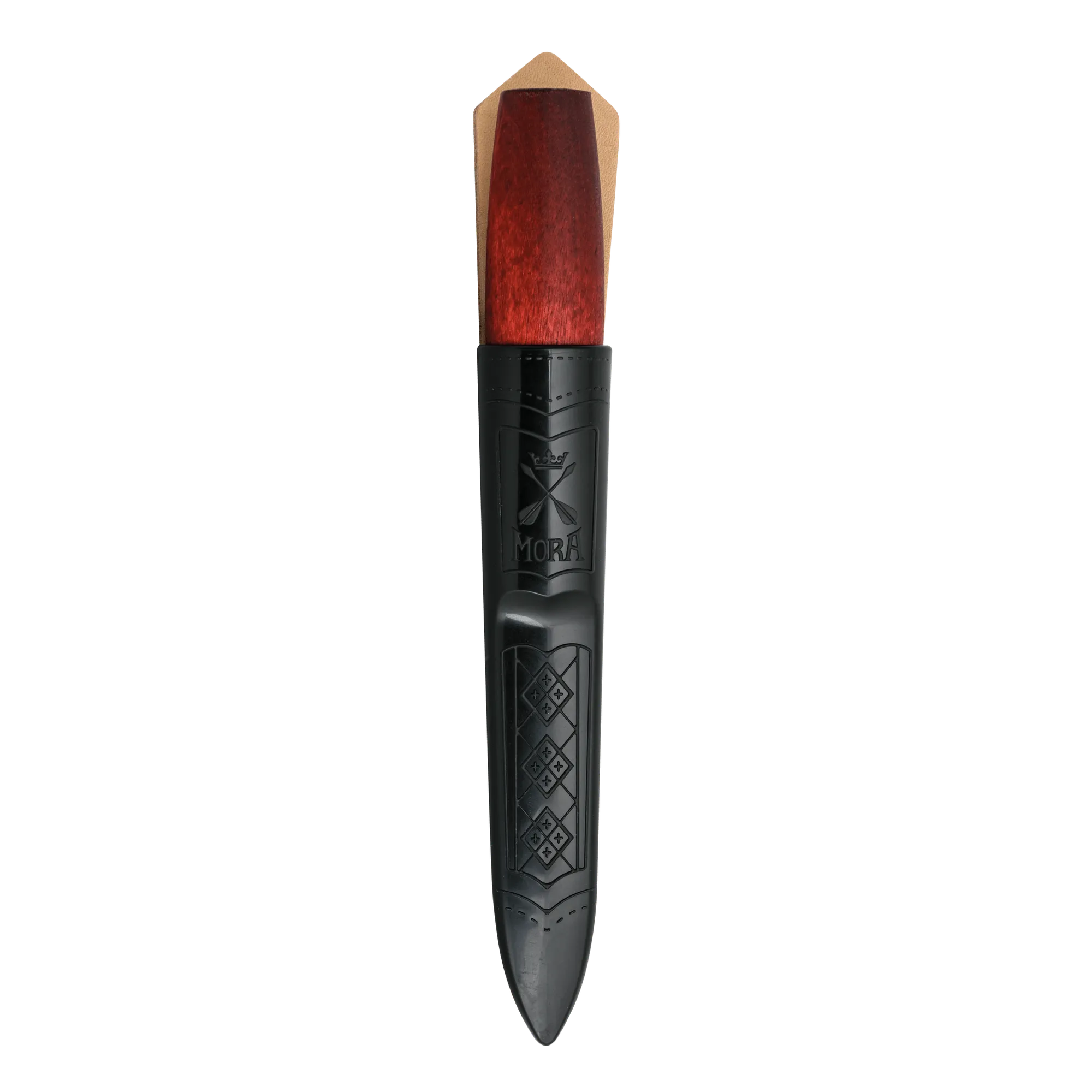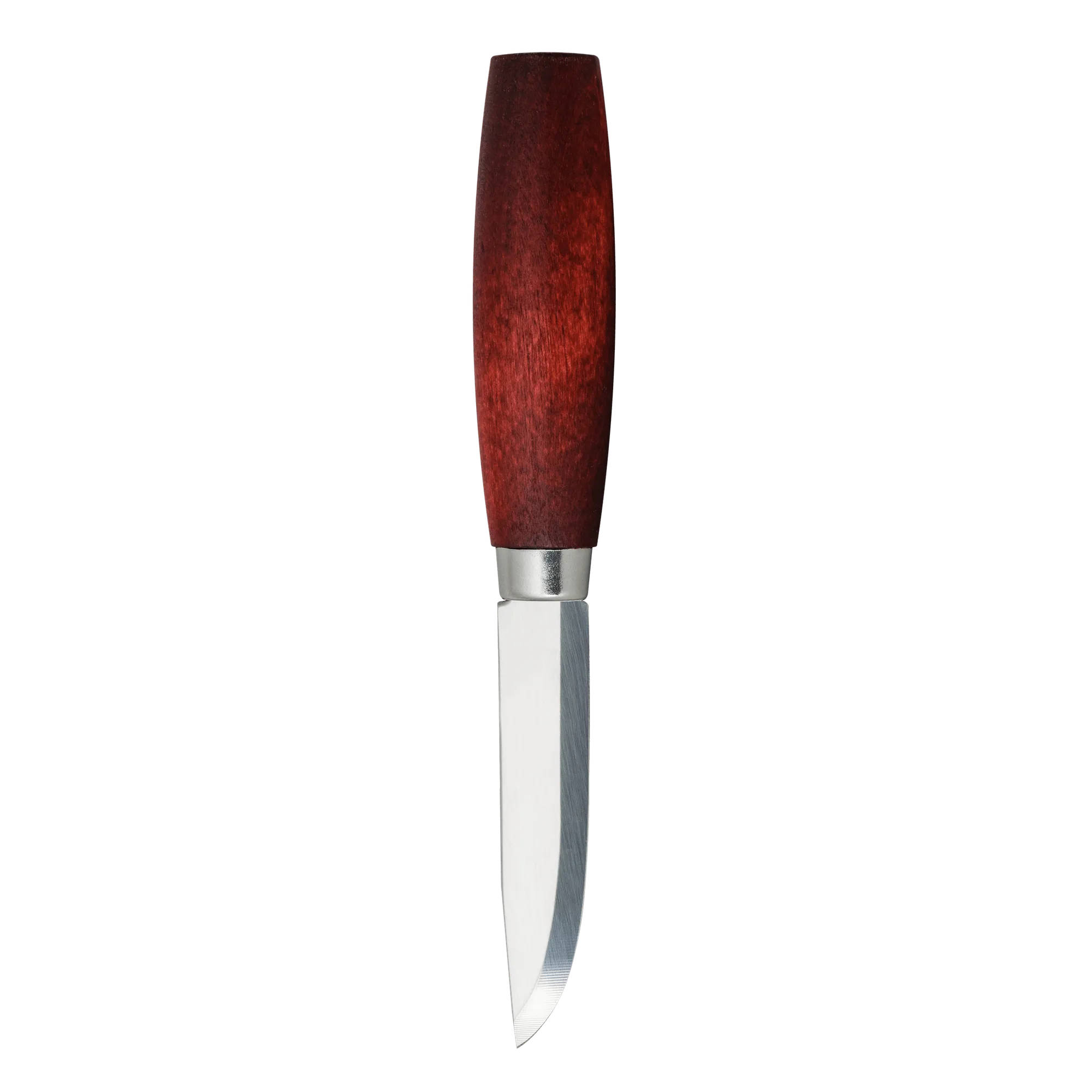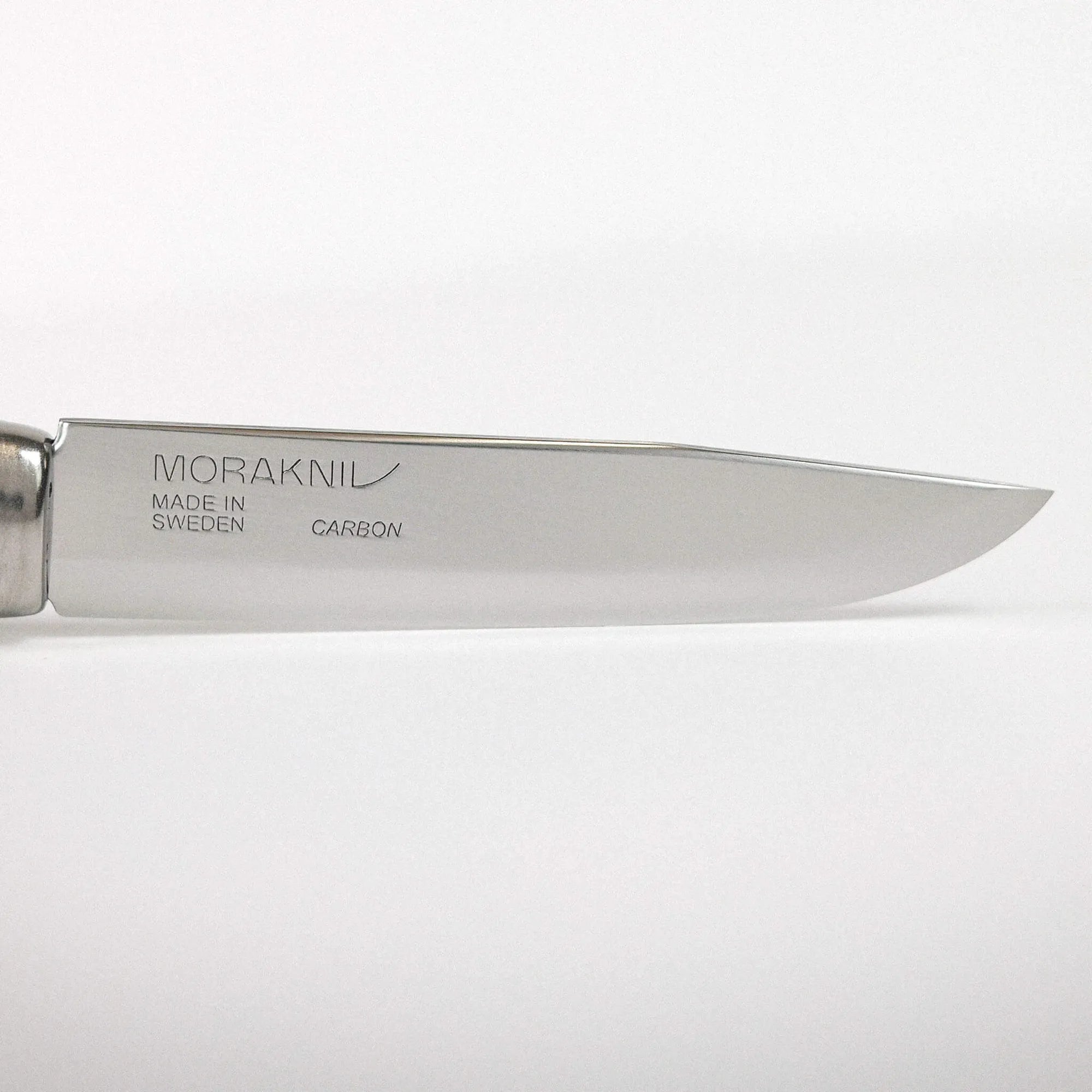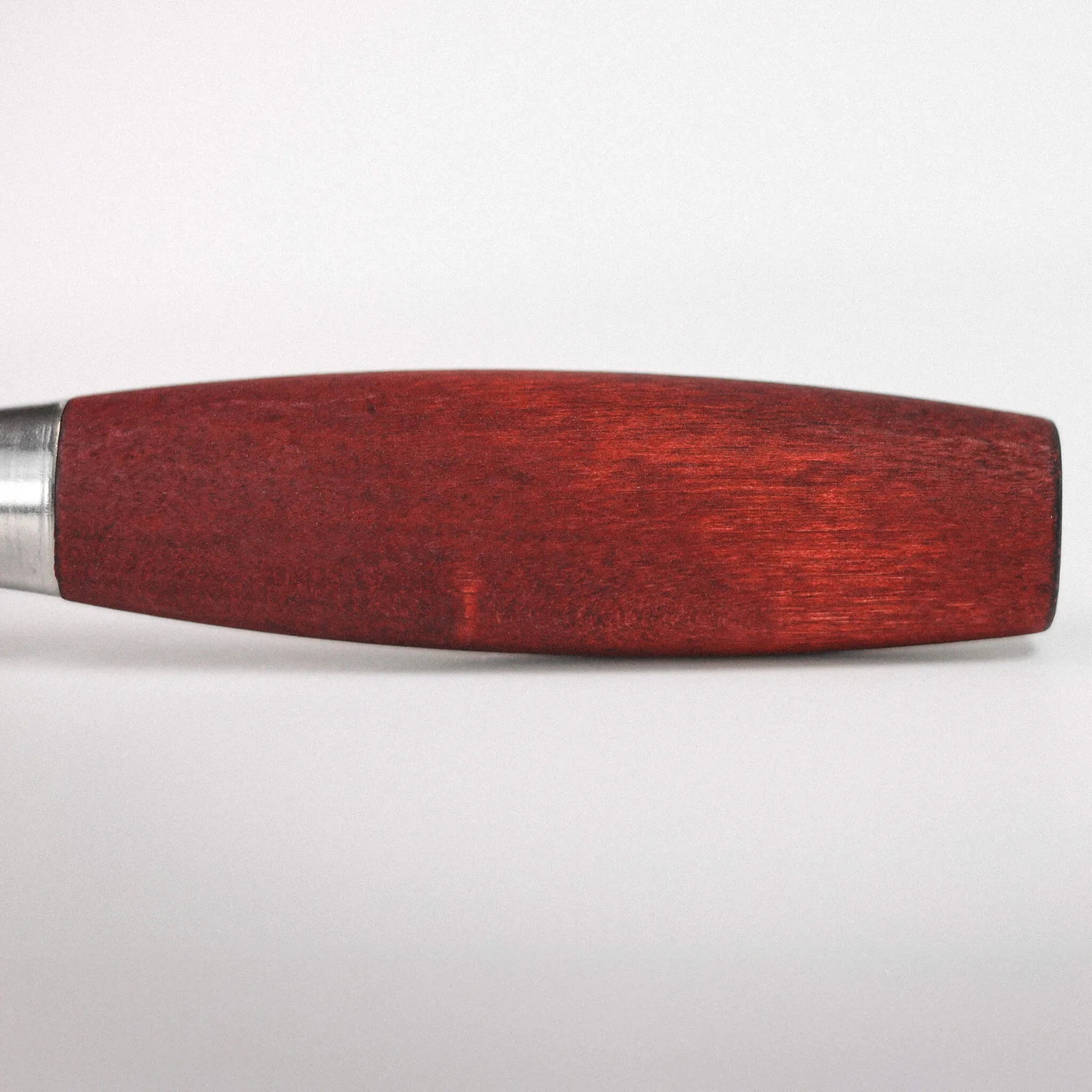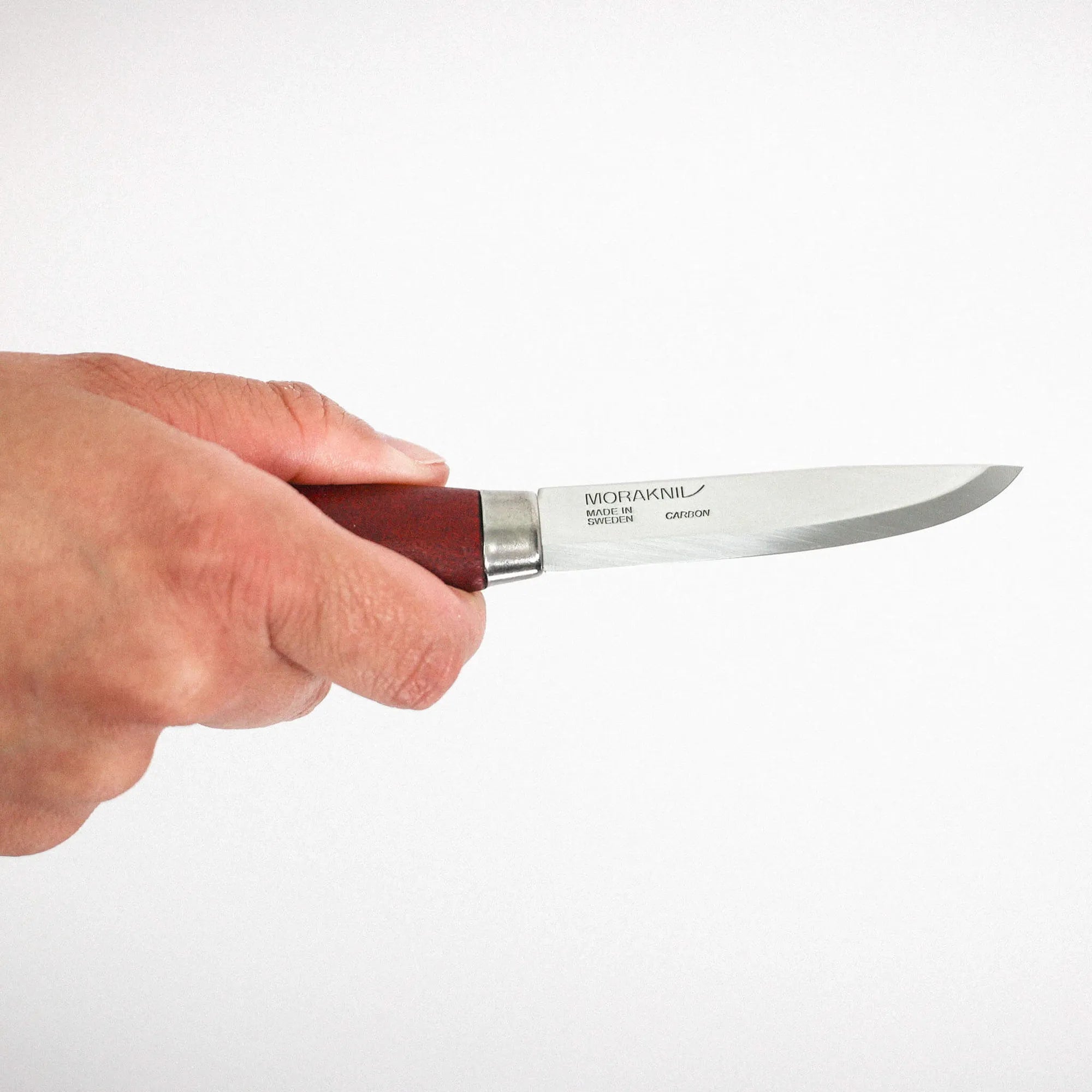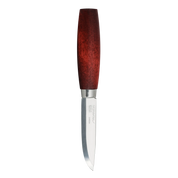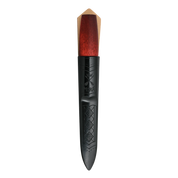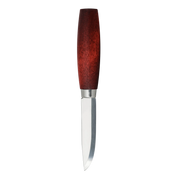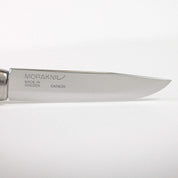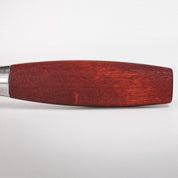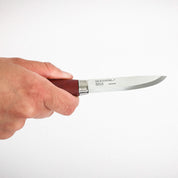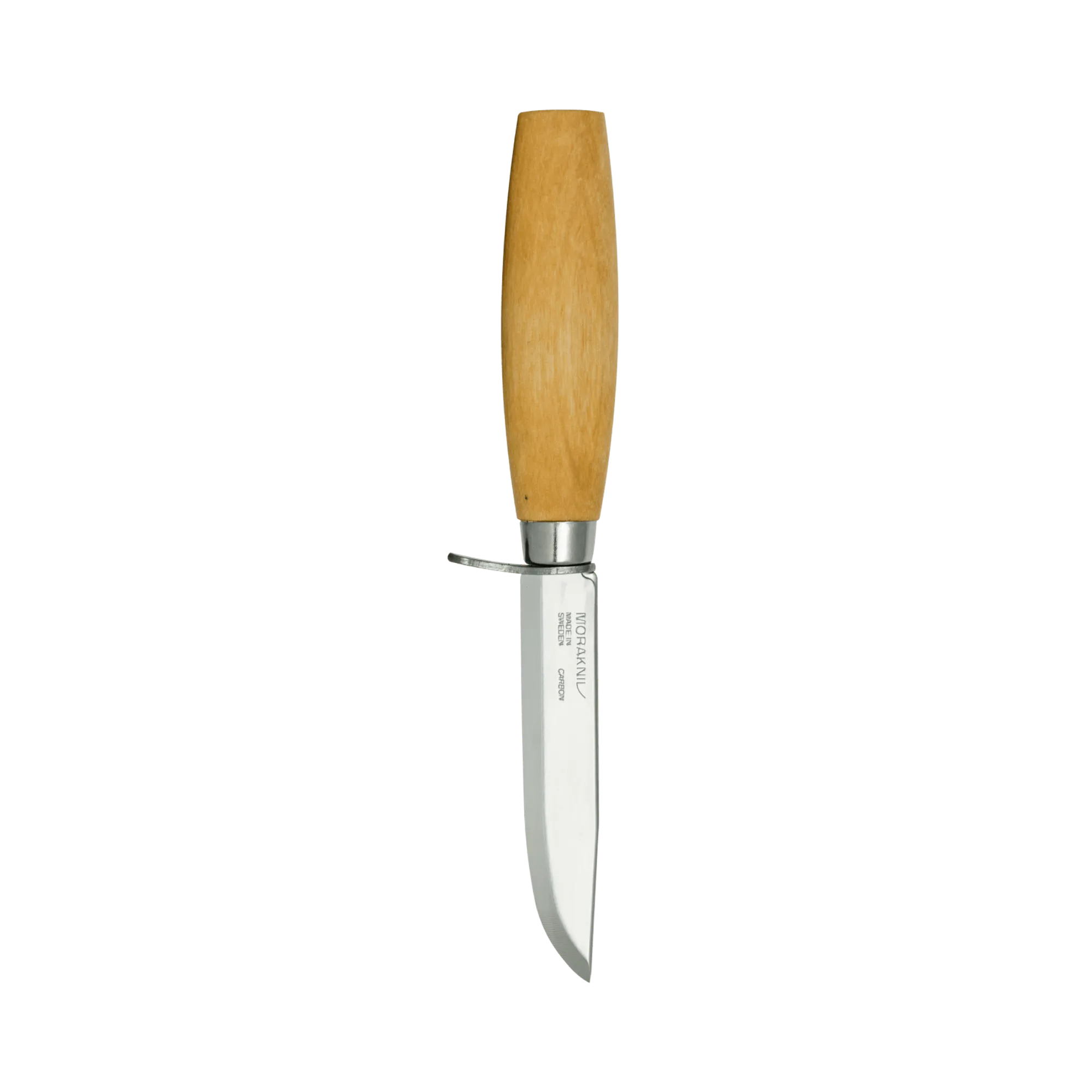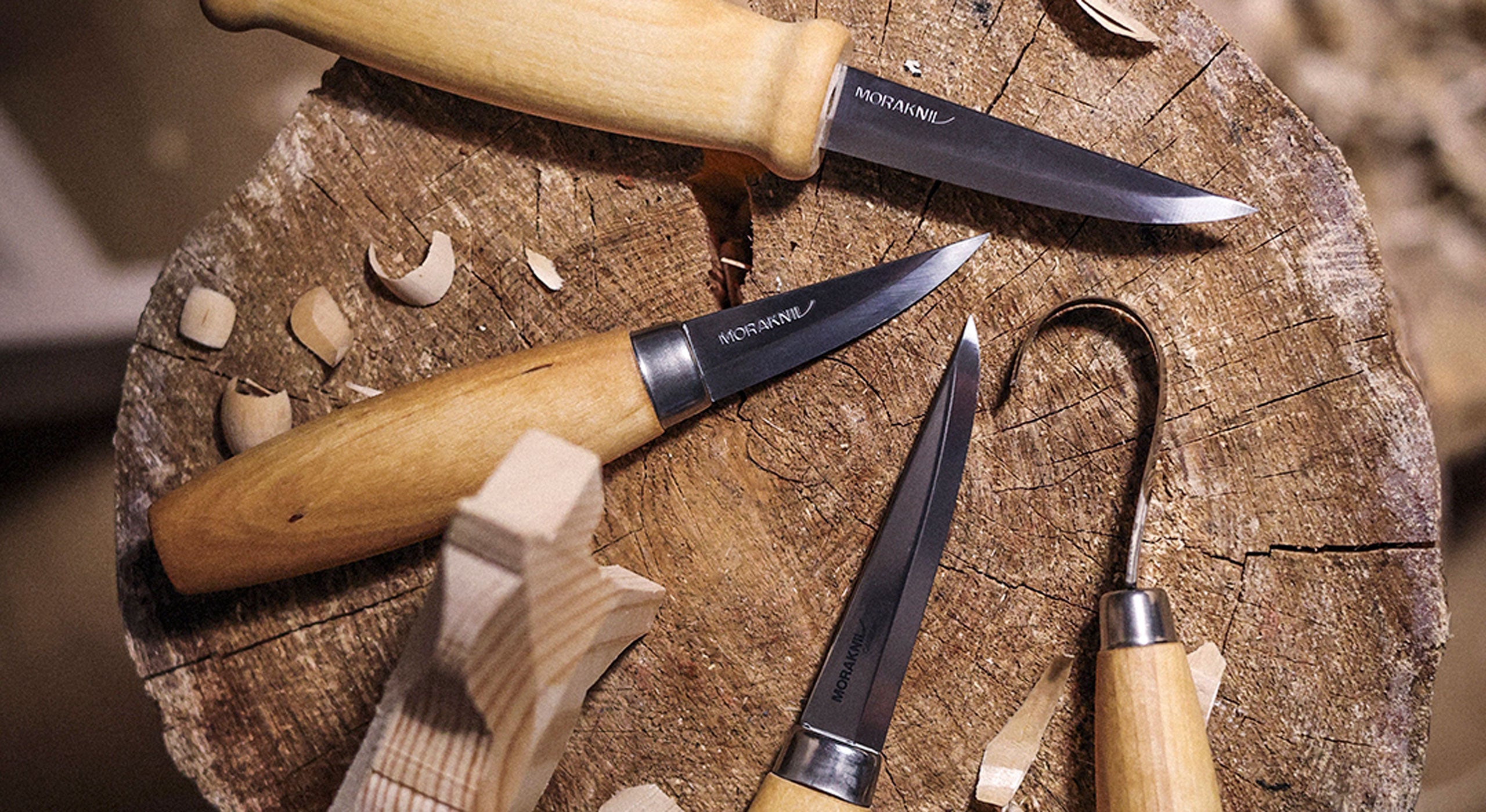
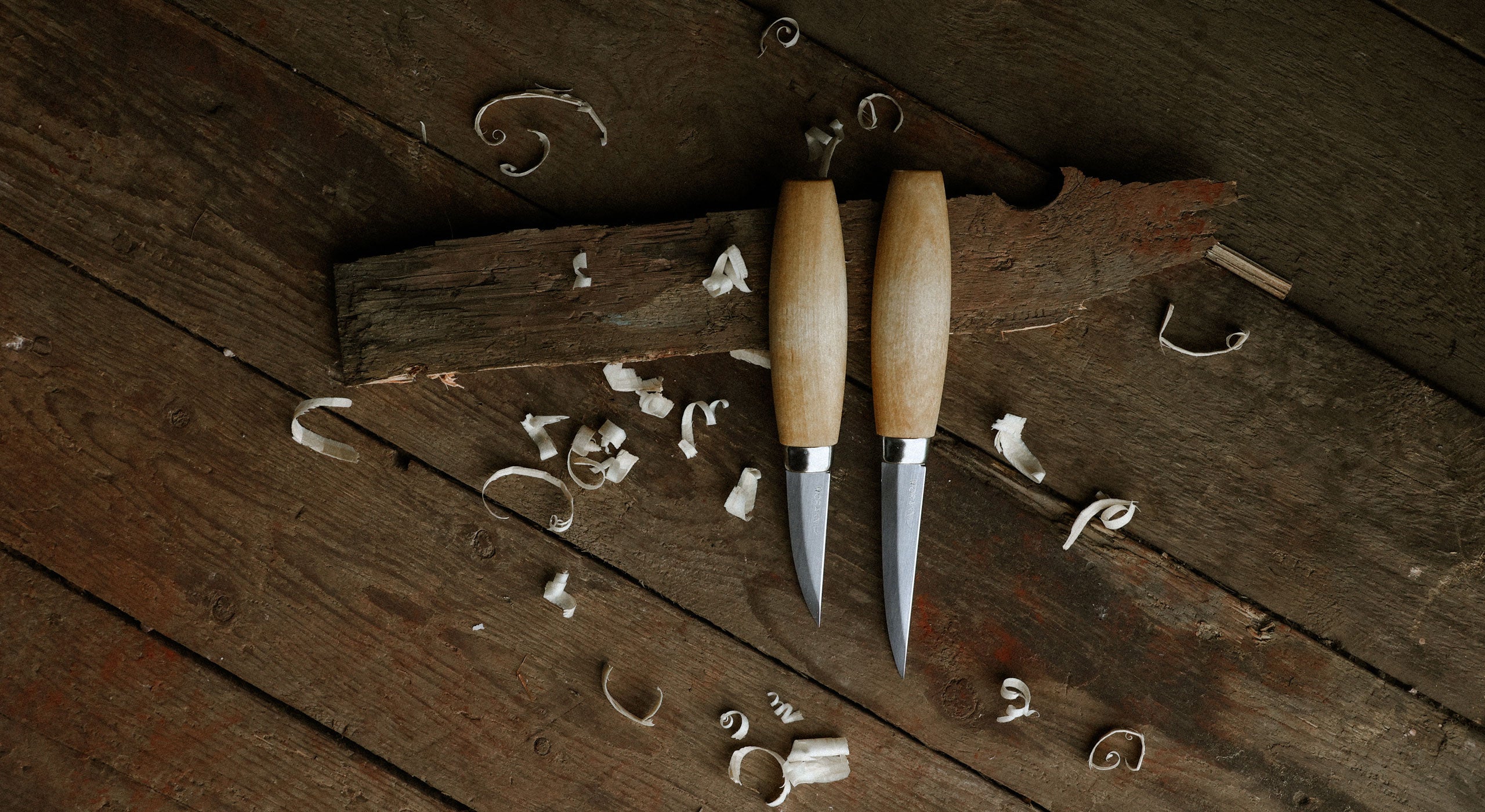
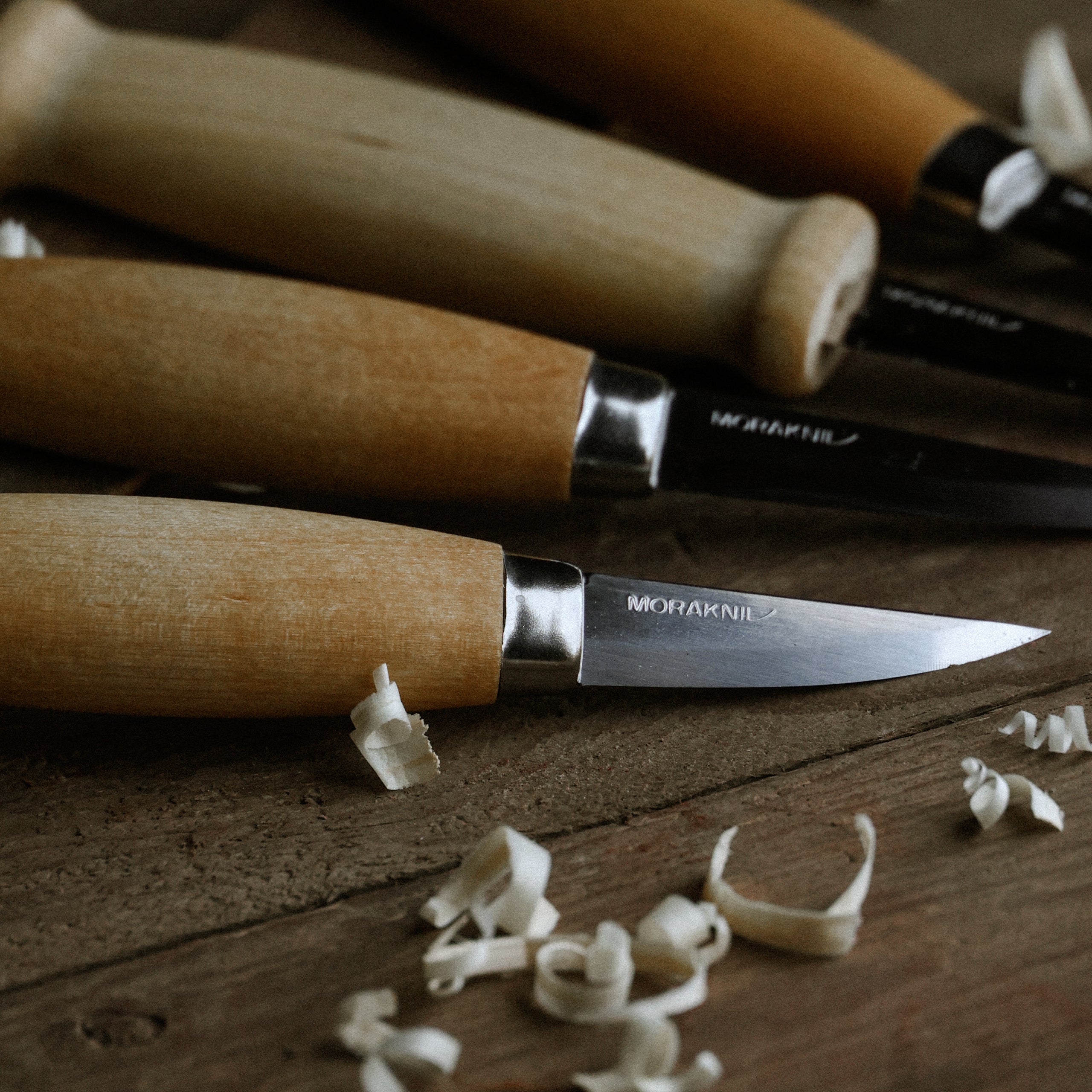
Slöjdknivar för nybörjare
Våra slöjdknivar är uppskattade av nybörjare och erfarna slöjdare världen över och välkända för sin höga kvalitet, utmärkta skärpa och bekväma skaft. Oavsett om du ska tälja skedar, dalahästar eller karvsnitt har vi rätt täljkniv för dig.För dig som är ny i slöjdvärlden är Slöjd Basic (S) ett tryggt val. Denna slöjdkniv är enkel att använda, har greppvänligt handtag i plast med säkert fingerskydd och smalt, spetsigt blad som passar de flesta typer av täljning.
Slöjdkniv 106 är en favorit bland nya och vana slöjdare. Denna slöjdkniv passar flera typer av täljning och finns i laminerat kolstål som tål sidoböjningar eller som är lätt att slipa om.
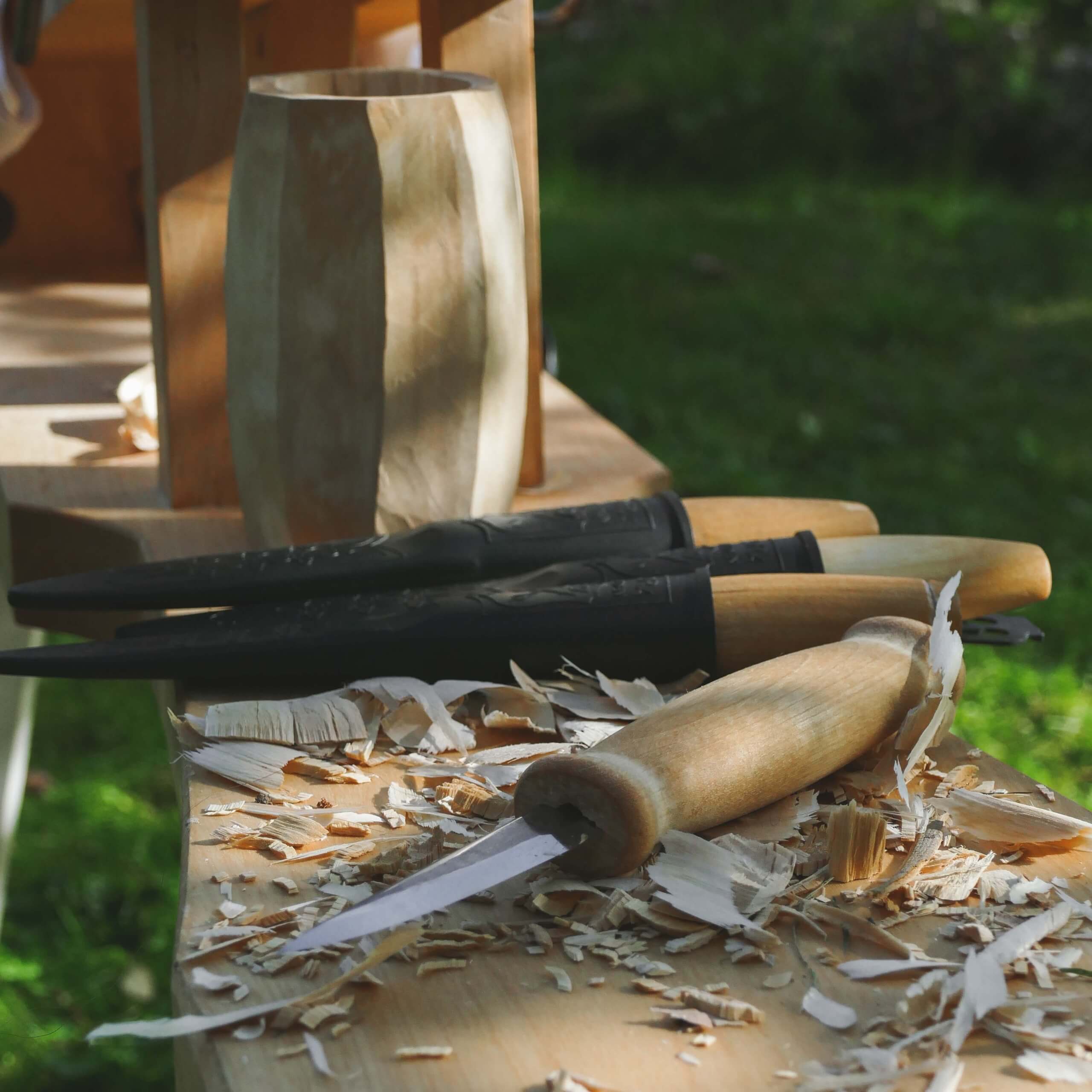
Nusnäskniven och ca 60 mm slöjdkniv för detaljarbete
Slöjdkniv 105 (LC) används vid täljning av Dalahästar i byn Nusnäs –en större slöjdkniv med 84 mm långt blad i laminerat kolstål.Slöjdkniv 120 är en perfekt baskniv med ett kort, smalt blad på 62 mm för finare täljning. Denna slöjdkniv finns både i kolstål och laminerat kolstål.

459 SEK
Skedkniv 162 har ett 55 mm långt, dubbeleggat blad i svenskt rostfritt stål. Snäv kurvatur för att tälja kåsor, skålar eller göra djupare urgröpningar. Knivfodral i Tärnsjöläder ingår.
Inkluderade tillbehör: Eggskydd i läder
339 SEK
Slöjdkniv 122 (LC) är en täljkniv med 62 mm långt blad i laminerat kolstål. Bladets har en spetsig form med rak egg som är lämplig för karvsnitt och detaljerad täljning.
Inkluderade tillbehör: Knivfodral
339 SEK
Morakniv Classic 1/0 är en tidlös hantverkskniv med 77 mm långt kolstålblad och rödbetsat, spolformat björkskaft. En pålitlig följeslagare för alla hantverksprojekt, lätt att slipa och byggd för att hålla i generationer.
Inkluderade tillbehör: Knivfodral
269 SEK
Nr 201 (C) är en mångsidig allt-i-allo-kniv i tyskt kolstål med full sticktånge. Den har ett bekvämt skaft i linoljad björk med parerstång för säkert grepp. En pålitlig följeslagare för hantverk, enklare täljning och vardagsbruk. Knivfodral i plast.
Inkluderade tillbehör: Knivfodral
Slöjdknivar i rostfritt stål och kolstål med långvarig skärpa
Våra slöjdknivar har olika stålsorter med olika egenskaper:- Laminerat kolstål (LC). Populärast bland erfarna slöjdare eftersom det bladet har god eggbeständighet och är tåligt för sidoböjningar. Bladet har polerats för att motverka rost.
- Kolstål (C). Dessa knivar har långvarig skärpa och är lätta att slipa om, men rostar lätt och kräver därför mer skötsel.
- Rostfritt stål (S). Slitstarkt, håller skärpan länge och är lättskött.
Nästan varje slöjdkniv från Morakniv har full sticktånge där bladet går hela vägen genom skaftet, vilket ger styrka och stabilitet i varje snitt. Bladtjockleken varierar mellan 2,0 mm och 2,7 mm beroende på kniv.
Säkerhetstips vid täljning
Att tälja är både rogivande och kreativt – men det innebär också att du arbetar med vassa verktyg. Här är några tips för att tälja säkrare:- Håll fingrarna borta från eggen
- Skär alltid bort från kroppenArbeta på en stadig, halkfri yta
- Börja med enkla projektSlipa dina knivar regelbundet – en vass kniv är säkrare än en slö
- Använd gärna skyddshandskar, särskilt som nybörjare
- Stressa inte – täljning är ett långsamt hantverk
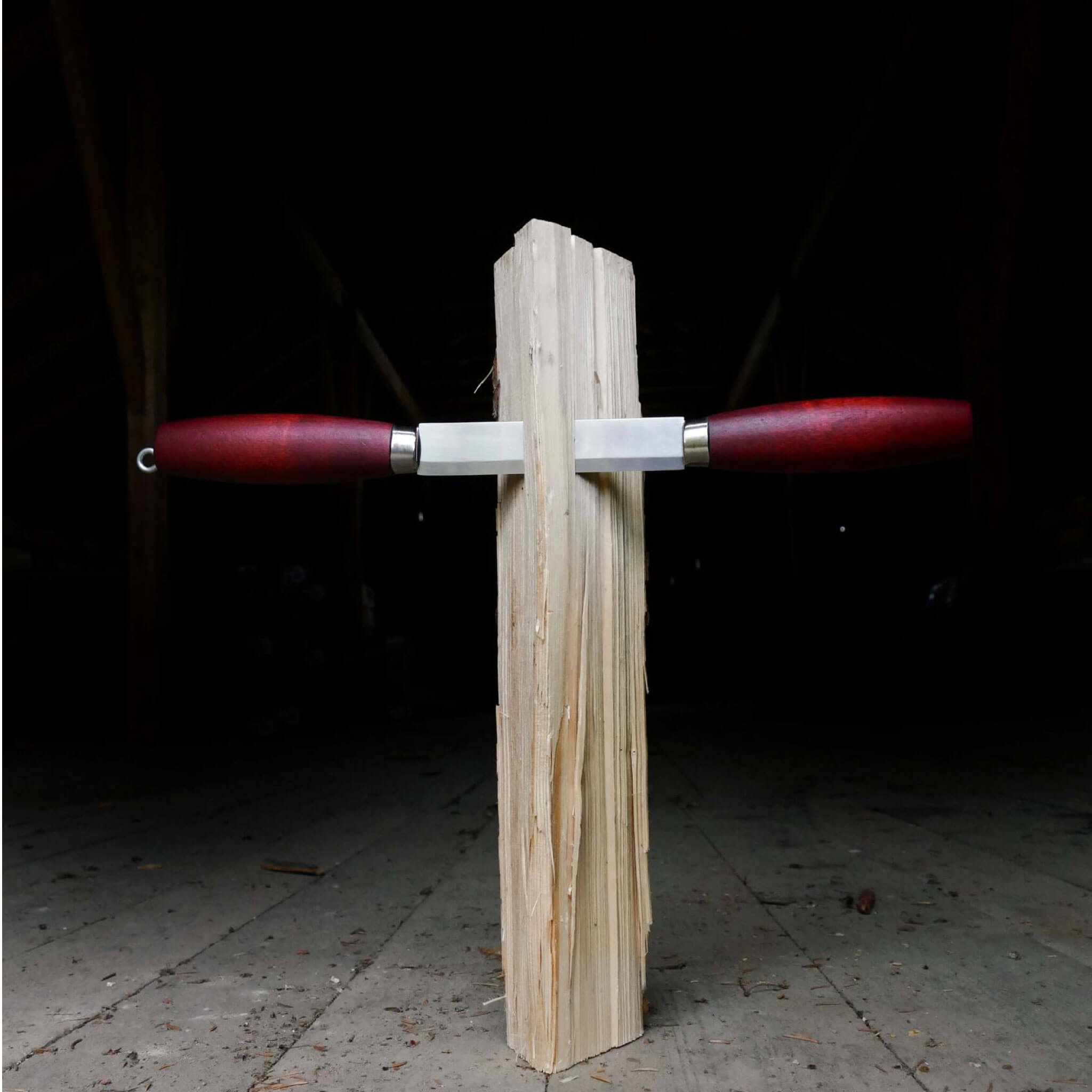
Karvsnittskniv på ca 60 mm och späntkniv
För dekorativa karvsnitt är Slöjdkniv 122 (LC) det bästa valet. Denna slöjdkniv har ett 62 mm långt, rakt blad som enkelt skapar mönster och detaljer i träet.Behöver du ta bort mycket material eller spänta ved till stickor är Späntkniv 220 (S) ett robust tvåhandsverktyg med dubbla björkskaft och blad i rostfritt stål.
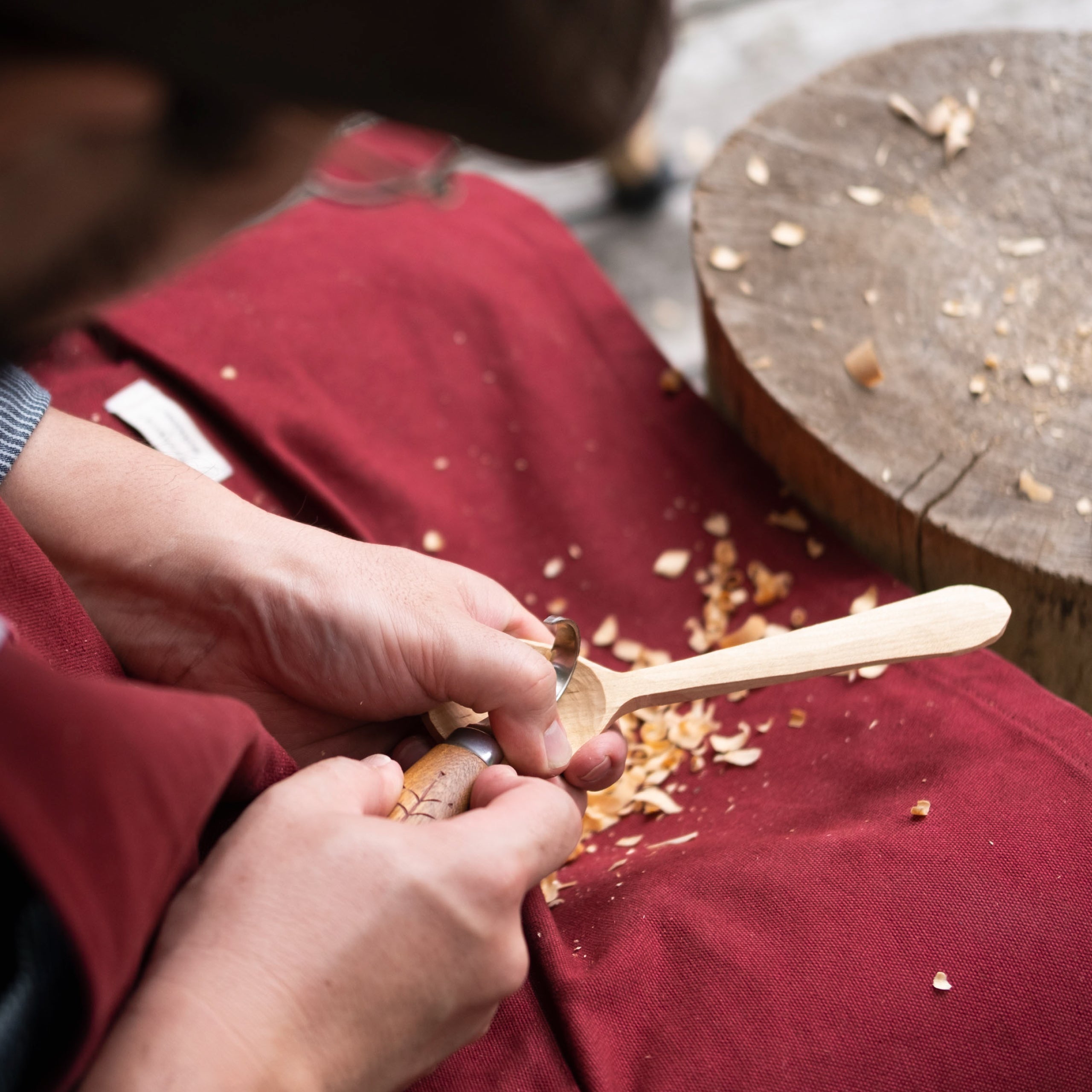
Skedknivar för höger- och vänsterhänta
En variant av slöjdkniv är skedkniven, utformad för urholkning av skålar, skedar och kåsor. Skedkniv 163 har en vid kurvatur och dubbelslipad egg som passar för bredare urgröpningar, medan Skedkniv 162 har en snävare böj för djupa skålningar.Skedkniv 164 finns både för högerhänta och vänsterhänta och är endast slipad på en sida så att du kan tälja med en hand och skjuta på bladet med den andra.
Alla skedknivar kommer i rostfritt stål, har bekväma skaft i skandinavisk björk och fodral i läder.
Kom igång med täljning – tips och projekt för nybörjare
Det bästa träet för nybörjare är mjuka träslag som lind eller furu – de är lätta att tälja i och förlåtande om tekniken inte är perfekt. Börja med grundtekniker som skärande, skjutande och urholkande snitt innan du går vidare till mer avancerade former.Nybörjarprojekt du kan prova:
- Täljkit för Nybörjare: Innehåller en skedkniv, en täljkniv och en färdigutskuren Dalahäst i furu – perfekt som första projekt.
- Träsked: Ett klassiskt täljövningsprojekt där du lär dig både att forma och urholka träet.
- Enkla djur eller figurer: Tälj en fågel, fisk eller björn – enkla former med utrymme för kreativitet.
- Små skålar eller kåsor: Bra träning för att använda skedknivar som 162 och 163.
Tekniker för mer avancerad täljning
När du känner dig bekväm med grundläggande tekniker kan du börja utforska mer avancerade tekniker:- Karvsnitt: Dekorativa mönster där små flisor tas bort med precision, t.ex. med Slöjdkniv 122 (LC) .
- Relieftäljning: Tälj figurer eller motiv i en plan träyta för att skapa en tredimensionell känsla.
- Urholkning med skedkniv: Lär dig att använda både skjutande och dragande snitt för att få kontroll och flyt i rörelserna.
- Vridning av bladet: Att byta vinkel och riktning på dina snitt ger mer djup och form.
- Forma skaftet: Många av våra knivar har skaft i björk som du själv kan slipa till för perfekt passform.
Testa gärna olika träslag – lind är lättbearbetat medan ek och lönn är mer utmanande men ger slitstarka resultat. Vill du ta din täljning till nästa nivå kan du kombinera flera knivar i ett projekt, t.ex. 106 för grovformning, 120 eller 122 för detaljer , och 163 för urholkning.


